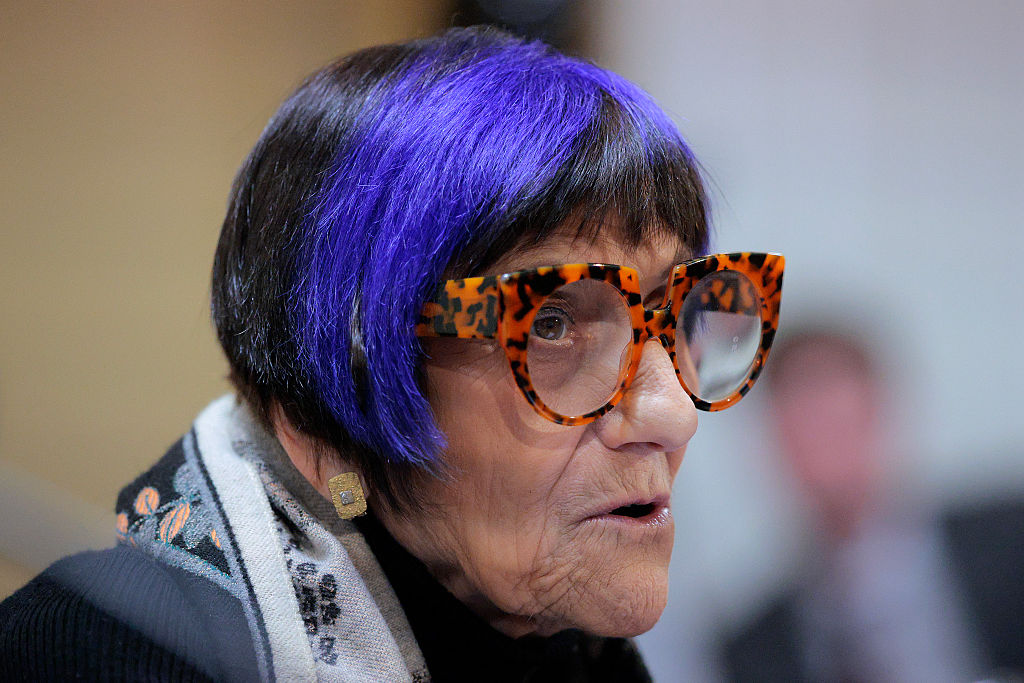
Catholic U.S. House Democrats cited Church teaching in defense of the dignity of migrants as Trump administration officials defend immigration enforcement.
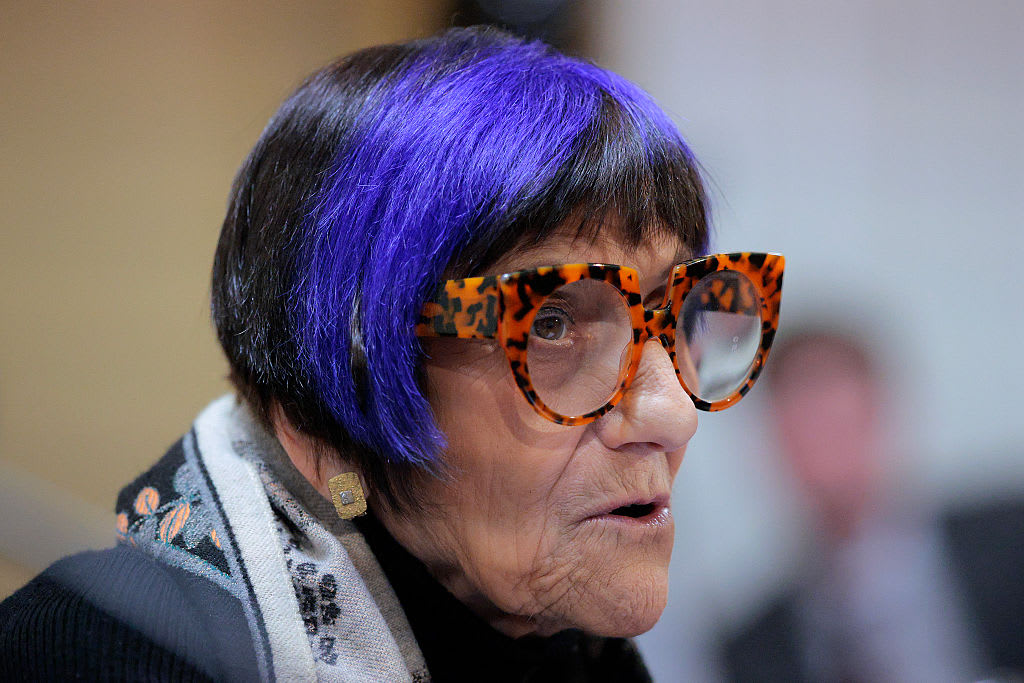

Catholic U.S. House Democrats cited Church teaching in defense of the dignity of migrants as Trump administration officials defend immigration enforcement.

![Amid criticism by bishops, Notre Dame says pro-abortion professor ‘well prepared’ to lead institute #Catholic The University of Notre Dame is signaling that it will stick by its appointment of an outspoken pro-abortion advocate to lead a university institute even after bishops from around the U.S. have criticized the decision and urged the school to change course.Multiple bishops have lamented the school’s decision to appoint global affairs Professor Susan Ostermann as director of the school’s Liu Institute for Asia and Asian Studies. The school announced the appointment in January.On Feb. 11 Fort Wayne-South Bend, Indiana, Bishop Kevin Rhoades, whose diocesan territory includes the university, expressed “dismay” and “strong opposition” to the appointment and called on the school to rescind the assignment, citing Ostermann’s public support for abortion.Several of Rhoades’ brother bishops followed suit, commending Rhoades for his statement and similarly calling on the university to reverse course on Ostermann’s appointment.Yet in a Feb. 13 statement to EWTN News, the school indicated that it would not pull Ostermann’s nomination to the leadership post.Ostermann “is a highly regarded political scientist and legal scholar whose insightful research on regulatory compliance … demonstrates the rigorous, interdisciplinary expertise required to lead the Liu Institute,” the school said.Calling Ostermann a “deeply committed educator,” the school said she is “well prepared to expand the institute’s global partnerships and create impactful research opportunities that advance our dedication to serving as the preeminent global Catholic research institution.”The university stressed its “unwavering” commitment “to upholding the inherent dignity of the human person and the sanctity of life at every stage.”“Those who serve in leadership positions at Notre Dame do so with the clear understanding that their decision-making as leaders must be guided by and consistent with the university’s Catholic mission,” the school said.The school did not immediately respond when asked for direct confirmation that it was continuing with Ostermann’s appointment to lead the Liu Institute.But its statement suggested the school is not backing down from the controversial decision, one that has brought withering criticism from both U.S. bishops and pro-life advocates and has seen the departure of at least two academics from the storied Catholic institution.Robert Gimello, a research professor emeritus of theology who is an expert on Buddhism, told the National Catholic Register that his “continued formal association with a unit of the university led by such a person is, for me, simply unconscionable.”Diane Desierto, a professor of law and of global affairs, also told the Register that she had cut ties with the institute over the appointment.Ostermann’s outspoken abortion advocacy has included instances where she has linked the pro-life movement to white supremacy and misogyny.The professor told the National Catholic Register in January that she “respect[s] Notre Dame’s institutional position on the sanctity of life at every stage” and described herself as “inspired by the university’s focus on integral human development, which calls us to promote the dignity and flourishing of every person.”She told the Register that her role at the school “is to support the diverse research of our scholars and students, not to advance a personal political agenda.”Ostermann had no further comment beyond her earlier statement, according to a university spokesperson. Amid criticism by bishops, Notre Dame says pro-abortion professor ‘well prepared’ to lead institute #Catholic The University of Notre Dame is signaling that it will stick by its appointment of an outspoken pro-abortion advocate to lead a university institute even after bishops from around the U.S. have criticized the decision and urged the school to change course.Multiple bishops have lamented the school’s decision to appoint global affairs Professor Susan Ostermann as director of the school’s Liu Institute for Asia and Asian Studies. The school announced the appointment in January.On Feb. 11 Fort Wayne-South Bend, Indiana, Bishop Kevin Rhoades, whose diocesan territory includes the university, expressed “dismay” and “strong opposition” to the appointment and called on the school to rescind the assignment, citing Ostermann’s public support for abortion.Several of Rhoades’ brother bishops followed suit, commending Rhoades for his statement and similarly calling on the university to reverse course on Ostermann’s appointment.Yet in a Feb. 13 statement to EWTN News, the school indicated that it would not pull Ostermann’s nomination to the leadership post.Ostermann “is a highly regarded political scientist and legal scholar whose insightful research on regulatory compliance … demonstrates the rigorous, interdisciplinary expertise required to lead the Liu Institute,” the school said.Calling Ostermann a “deeply committed educator,” the school said she is “well prepared to expand the institute’s global partnerships and create impactful research opportunities that advance our dedication to serving as the preeminent global Catholic research institution.”The university stressed its “unwavering” commitment “to upholding the inherent dignity of the human person and the sanctity of life at every stage.”“Those who serve in leadership positions at Notre Dame do so with the clear understanding that their decision-making as leaders must be guided by and consistent with the university’s Catholic mission,” the school said.The school did not immediately respond when asked for direct confirmation that it was continuing with Ostermann’s appointment to lead the Liu Institute.But its statement suggested the school is not backing down from the controversial decision, one that has brought withering criticism from both U.S. bishops and pro-life advocates and has seen the departure of at least two academics from the storied Catholic institution.Robert Gimello, a research professor emeritus of theology who is an expert on Buddhism, told the National Catholic Register that his “continued formal association with a unit of the university led by such a person is, for me, simply unconscionable.”Diane Desierto, a professor of law and of global affairs, also told the Register that she had cut ties with the institute over the appointment.Ostermann’s outspoken abortion advocacy has included instances where she has linked the pro-life movement to white supremacy and misogyny.The professor told the National Catholic Register in January that she “respect[s] Notre Dame’s institutional position on the sanctity of life at every stage” and described herself as “inspired by the university’s focus on integral human development, which calls us to promote the dignity and flourishing of every person.”She told the Register that her role at the school “is to support the diverse research of our scholars and students, not to advance a personal political agenda.”Ostermann had no further comment beyond her earlier statement, according to a university spokesperson.](https://unitedyam.com/wp-content/uploads/2026/02/amid-criticism-by-bishops-notre-dame-says-pro-abortion-professor-well-prepared-to-lead-institute-catholic-the-university-of-notre-dame-is-signaling-that-it-will-stick-by-its-appoin.jpg)
Multiple U.S. bishops have criticized the school’s decision and urged it to rescind the appointment.
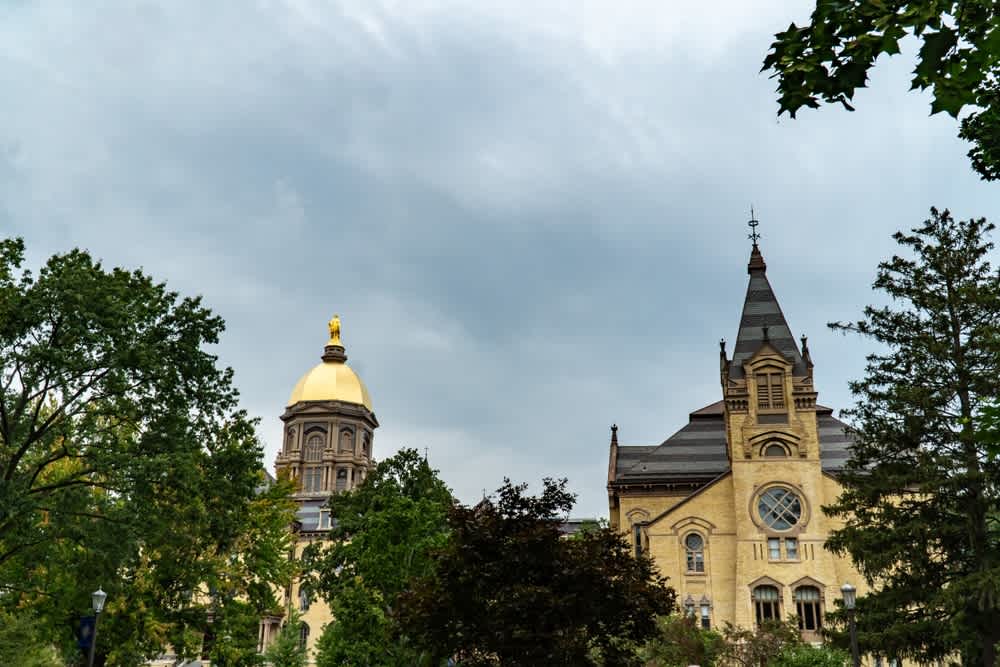
![Puerto Rico’s penal code recognizes unborn babies as human beings #Catholic Puerto Rico Gov. Jenniffer González signed into law on Feb. 12 a bill amending the penal code to recognize unborn babies as human beings at “any stage of gestation.”Senate Bill 923 — which when signed became Law 18-2026 — amends Article 92 of the penal code, which currently states that “murder is the intentional, knowing, or reckless killing of a human being.”The new law establishes that “for the purposes of this chapter, ‘human being’ shall include any conceived [unborn child] at any stage of gestation within the mother’s womb.”This legislation was authored by González, a Republican. In a press release posted on X, she explained that the objective is to complement Law 166-2025, known as the Keyshla Madlane Law, named after a pregnant woman in Puerto Rico who was murdered in April 2021.This law, the press release states, “among other things, defines as first-degree murder the intentional and knowing killing of a pregnant woman, resulting in the death of the unborn child at any stage of gestation within the mother’s womb.”In this regard, the approval of Law 18-2026 stands out, noting that “the legislation aims to maintain consistency between civil and criminal provisions by recognizing the conceived unborn child as a human being.”In December 2025, the governor also signed into law Senate Bill 504, which amended the civil code to state that “a human being in gestation or nasciturus is a natural person, including the conceived child at any stage of gestation within the mother’s womb.”A natural person simply means a living human being as distinct from a legal person such as a corporation. At the time, all of these laws were criticized by feminist and pro-abortion groups, who argued that they could lead to a ban on abortion in Puerto Rico and other U.S. jurisdictions.However, Puerto Rico Sen. Joanne Rodríguez Veve defended the passage of Bill 923 in January, stating that “the message of this type of legislation is powerful. It reaffirms this kind of language in our public policy that in the womb of a pregnant woman there is not just anything, not a mere indefinable object, but a subject, a developing human being who has dignity and whose value is intrinsic to their human nature.”This story was first published by ACI Prensa, the Spanish-language sister service of EWTN News. It has been translated and adapted by EWTN News English. Puerto Rico’s penal code recognizes unborn babies as human beings #Catholic Puerto Rico Gov. Jenniffer González signed into law on Feb. 12 a bill amending the penal code to recognize unborn babies as human beings at “any stage of gestation.”Senate Bill 923 — which when signed became Law 18-2026 — amends Article 92 of the penal code, which currently states that “murder is the intentional, knowing, or reckless killing of a human being.”The new law establishes that “for the purposes of this chapter, ‘human being’ shall include any conceived [unborn child] at any stage of gestation within the mother’s womb.”This legislation was authored by González, a Republican. In a press release posted on X, she explained that the objective is to complement Law 166-2025, known as the Keyshla Madlane Law, named after a pregnant woman in Puerto Rico who was murdered in April 2021.This law, the press release states, “among other things, defines as first-degree murder the intentional and knowing killing of a pregnant woman, resulting in the death of the unborn child at any stage of gestation within the mother’s womb.”In this regard, the approval of Law 18-2026 stands out, noting that “the legislation aims to maintain consistency between civil and criminal provisions by recognizing the conceived unborn child as a human being.”In December 2025, the governor also signed into law Senate Bill 504, which amended the civil code to state that “a human being in gestation or nasciturus is a natural person, including the conceived child at any stage of gestation within the mother’s womb.”A natural person simply means a living human being as distinct from a legal person such as a corporation. At the time, all of these laws were criticized by feminist and pro-abortion groups, who argued that they could lead to a ban on abortion in Puerto Rico and other U.S. jurisdictions.However, Puerto Rico Sen. Joanne Rodríguez Veve defended the passage of Bill 923 in January, stating that “the message of this type of legislation is powerful. It reaffirms this kind of language in our public policy that in the womb of a pregnant woman there is not just anything, not a mere indefinable object, but a subject, a developing human being who has dignity and whose value is intrinsic to their human nature.”This story was first published by ACI Prensa, the Spanish-language sister service of EWTN News. It has been translated and adapted by EWTN News English.](https://unitedyam.com/wp-content/uploads/2026/02/puerto-ricos-penal-code-recognizes-unborn-babies-as-human-beings-catholic-puerto-rico-gov-jenniffer-gonzalez-signed-into-law-on-feb-12-a-bill-amending-the-penal-code-to-recognize-unborn-ba.jpg)
Puerto Rico Gov. Jenniffer González signed into law on Feb. 12 a bill amending the penal code to recognize unborn babies as human beings at “any stage of gestation.”
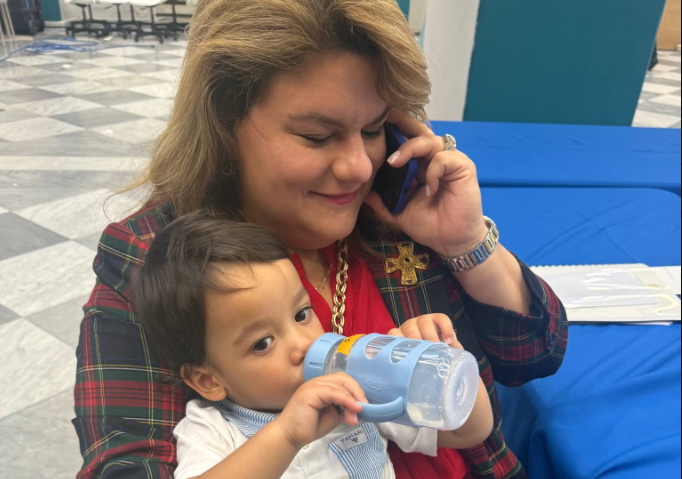
![BREAKING: Bishop Rhoades expresses ‘strong opposition’ to professor’s appointment at Notre Dame #Catholic Fort Wayne-South Bend, Indiana, Bishop Kevin Rhoades on Feb. 11 expressed “dismay” and “strong opposition” to the University of Notre Dame’s appointment of a pro-abortion professor to a leadership position at the school, with the bishop urging the university to “make things right” and rescind the appointment. Notre Dame has been at the center of controversy since early January when it named global affairs Professor Susan Ostermann as director of the school’s Liu Institute for Asia and Asian Studies. Ostermann is an outspoken pro-abortion advocate who has regularly criticized the pro-life movement, up to and including linking it to white supremacy and misogyny. The university has come under fire for the appointment, including from Catholic advocates and pro-life students at Notre Dame. Bishop urges school to retract appointmentIn his Feb. 11 statement, Rhoades — whose diocesan territory includes the university — said that since the controversy began he has read many of Ostermann’s pro-abortion op-eds and was moved to “express my dismay and my strong opposition to this appointment,” which he said is “causing scandal to the faithful of our diocese and beyond.”Ostermann’s public support of abortion and her “disparaging and inflammatory” criticism of the pro-life movement “go against a core principle of justice that is central to Notre Dame’s Catholic identity and mission,” the prelate said. The professor’s pro-abortion advocacy and her remarks about pro-life advocates “should disqualify her from an administrative and leadership role at a Catholic university,” Rhoades said.While expressing hope that Ostermann would “explicitly retract” her pro-abortion advocacy and change her mind on abortion, the bishop said that the appointment “understandably creates confusion” regarding Notre Dame’s Catholic mission and identity.Leadership appointments “have [a] profound impact on the integrity of Notre Dame’s public witness as a Catholic university,” Rhoades said.The bishop in issuing the letter cited the apostolic constitution Ex Corde Ecclesiae, which directs in part that bishops “have a particular responsibility to promote Catholic universities, and especially to promote and assist in the preservation and strengthening of their Catholic identity.”“I call upon the leadership of Notre Dame to rectify this situation,” Rhoades said. Noting that Ostermann’s appointment is not scheduled to go into effect until July 1, the prelate wrote: “There is still time to make things right.”The university did not immediately respond to a request for comment from EWTN News. Yet the school has defended Ostermann’s appointment since the controversy erupted, telling media that she is “a highly regarded political scientist and legal scholar” who is qualified to lead the Liu Institute. “Those who serve in leadership positions at Notre Dame do so with the clear understanding that their decision-making as leaders must be guided by and consistent with the university’s Catholic mission,” the school said. Among criticism from both within and without the school, at least two scholars have resigned their position at the Asian studies institute in response to the appointment. Robert Gimello, a research professor emeritus of theology who is an expert on Buddhism, told the National Catholic Register that his “continued formal association with a unit of the university led by such a person is, for me, simply unconscionable.”Diane Desierto, a professor of law and of global affairs, also told the Register that she had cut ties with the institute over the appointment. BREAKING: Bishop Rhoades expresses ‘strong opposition’ to professor’s appointment at Notre Dame #Catholic Fort Wayne-South Bend, Indiana, Bishop Kevin Rhoades on Feb. 11 expressed “dismay” and “strong opposition” to the University of Notre Dame’s appointment of a pro-abortion professor to a leadership position at the school, with the bishop urging the university to “make things right” and rescind the appointment. Notre Dame has been at the center of controversy since early January when it named global affairs Professor Susan Ostermann as director of the school’s Liu Institute for Asia and Asian Studies. Ostermann is an outspoken pro-abortion advocate who has regularly criticized the pro-life movement, up to and including linking it to white supremacy and misogyny. The university has come under fire for the appointment, including from Catholic advocates and pro-life students at Notre Dame. Bishop urges school to retract appointmentIn his Feb. 11 statement, Rhoades — whose diocesan territory includes the university — said that since the controversy began he has read many of Ostermann’s pro-abortion op-eds and was moved to “express my dismay and my strong opposition to this appointment,” which he said is “causing scandal to the faithful of our diocese and beyond.”Ostermann’s public support of abortion and her “disparaging and inflammatory” criticism of the pro-life movement “go against a core principle of justice that is central to Notre Dame’s Catholic identity and mission,” the prelate said. The professor’s pro-abortion advocacy and her remarks about pro-life advocates “should disqualify her from an administrative and leadership role at a Catholic university,” Rhoades said.While expressing hope that Ostermann would “explicitly retract” her pro-abortion advocacy and change her mind on abortion, the bishop said that the appointment “understandably creates confusion” regarding Notre Dame’s Catholic mission and identity.Leadership appointments “have [a] profound impact on the integrity of Notre Dame’s public witness as a Catholic university,” Rhoades said.The bishop in issuing the letter cited the apostolic constitution Ex Corde Ecclesiae, which directs in part that bishops “have a particular responsibility to promote Catholic universities, and especially to promote and assist in the preservation and strengthening of their Catholic identity.”“I call upon the leadership of Notre Dame to rectify this situation,” Rhoades said. Noting that Ostermann’s appointment is not scheduled to go into effect until July 1, the prelate wrote: “There is still time to make things right.”The university did not immediately respond to a request for comment from EWTN News. Yet the school has defended Ostermann’s appointment since the controversy erupted, telling media that she is “a highly regarded political scientist and legal scholar” who is qualified to lead the Liu Institute. “Those who serve in leadership positions at Notre Dame do so with the clear understanding that their decision-making as leaders must be guided by and consistent with the university’s Catholic mission,” the school said. Among criticism from both within and without the school, at least two scholars have resigned their position at the Asian studies institute in response to the appointment. Robert Gimello, a research professor emeritus of theology who is an expert on Buddhism, told the National Catholic Register that his “continued formal association with a unit of the university led by such a person is, for me, simply unconscionable.”Diane Desierto, a professor of law and of global affairs, also told the Register that she had cut ties with the institute over the appointment.](https://unitedyam.com/wp-content/uploads/2026/02/breaking-bishop-rhoades-expresses-strong-opposition-to-professors-appointment-at-notre-dame-catholic-fort-wayne-south-bend-indiana-bishop-kevin-rhoades-on-feb-11-expres-scaled.jpg)
Notre Dame has been at the center of controversy since early January when it named global affairs Professor Susan Ostermann as director of the school’s Liu Institute for Asia and Asian Studies.
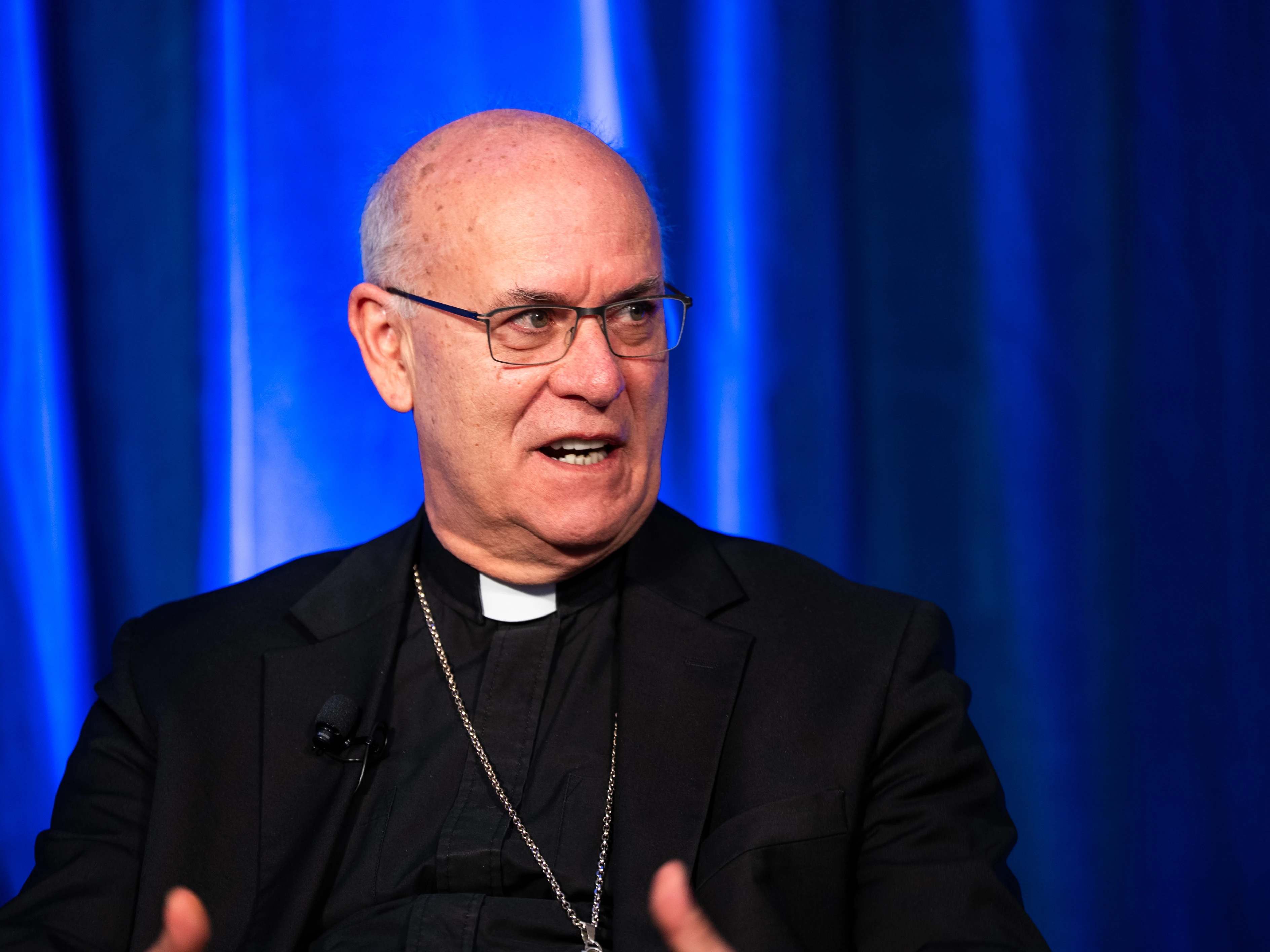
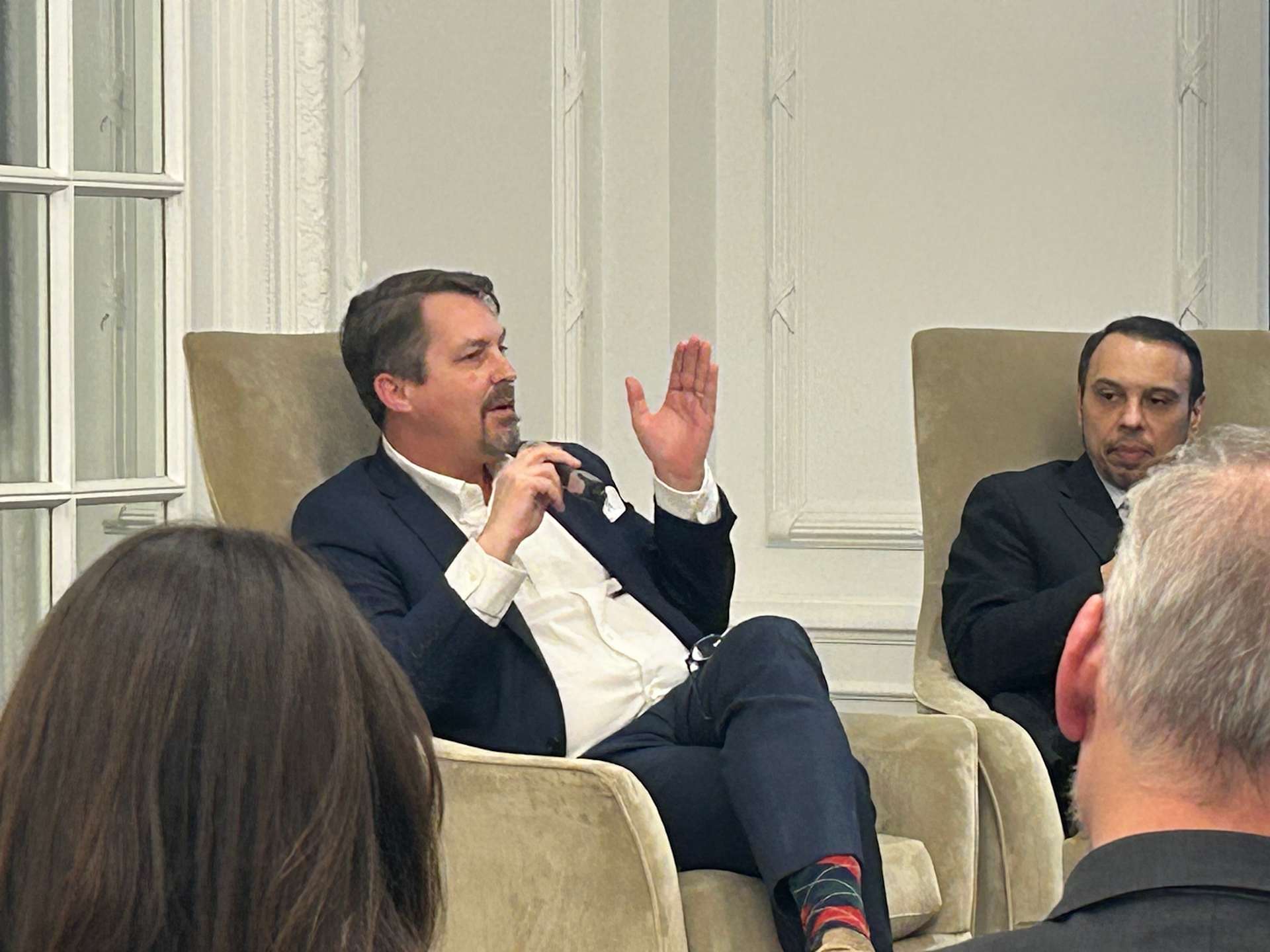
A Hungarian think tank’s new paper “Migration and Ethics: The Axioms of a Christian Migration Policy” prompts a meeting of the minds.
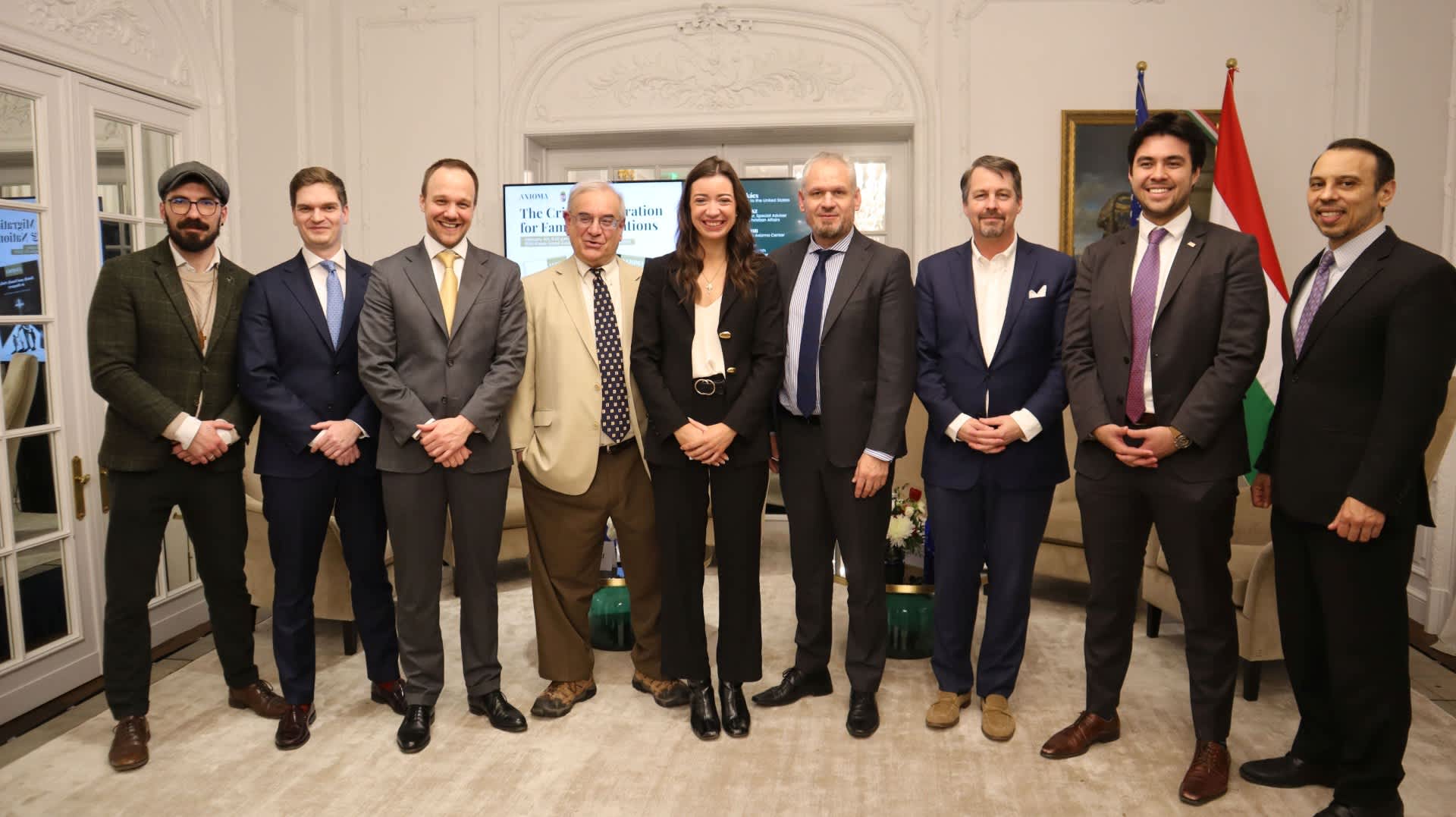
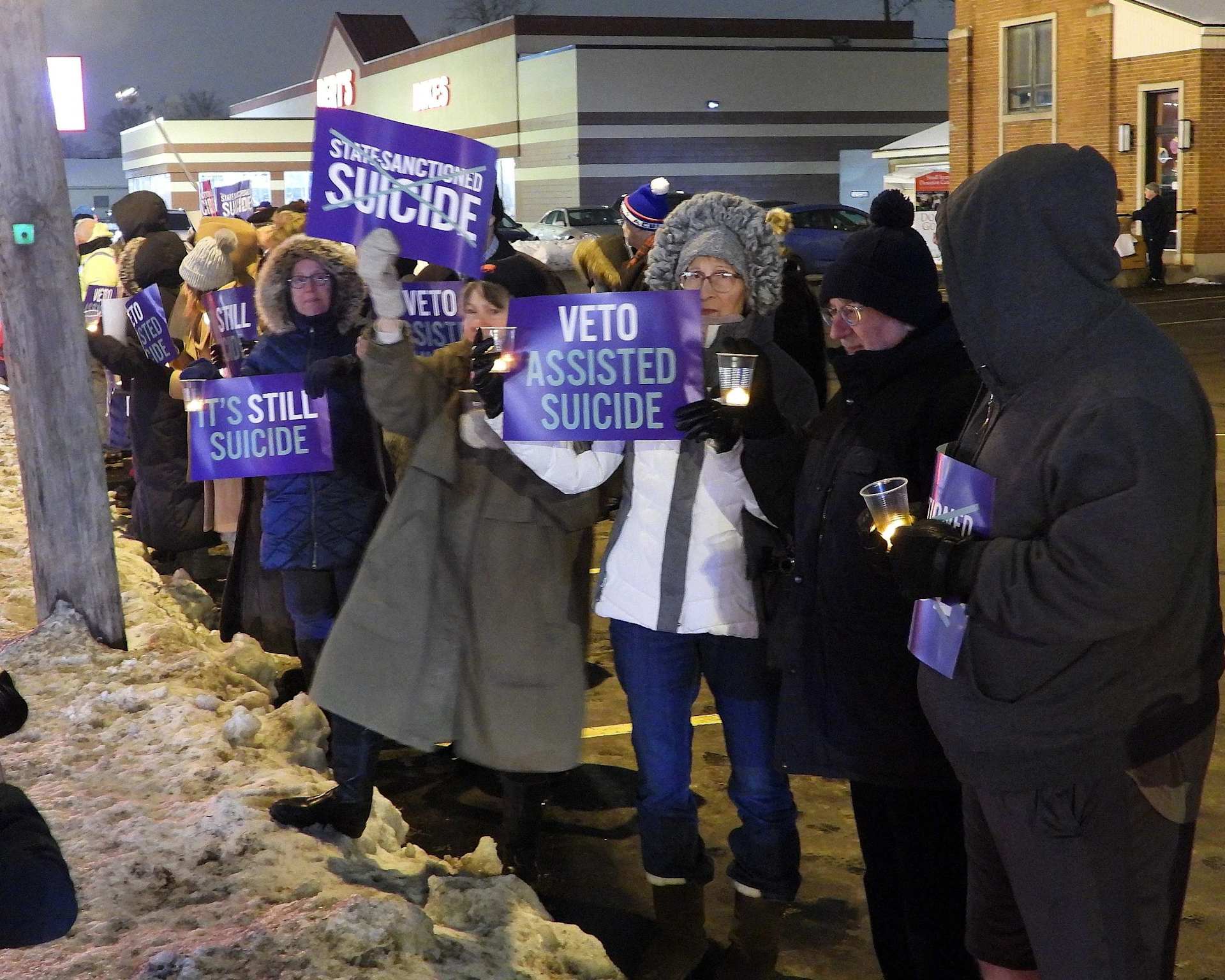
In spite of opposition from Catholic bishops and patient advocate groups, Gov. Kathy Hochul signed into law physician-assisted suicide in New York.
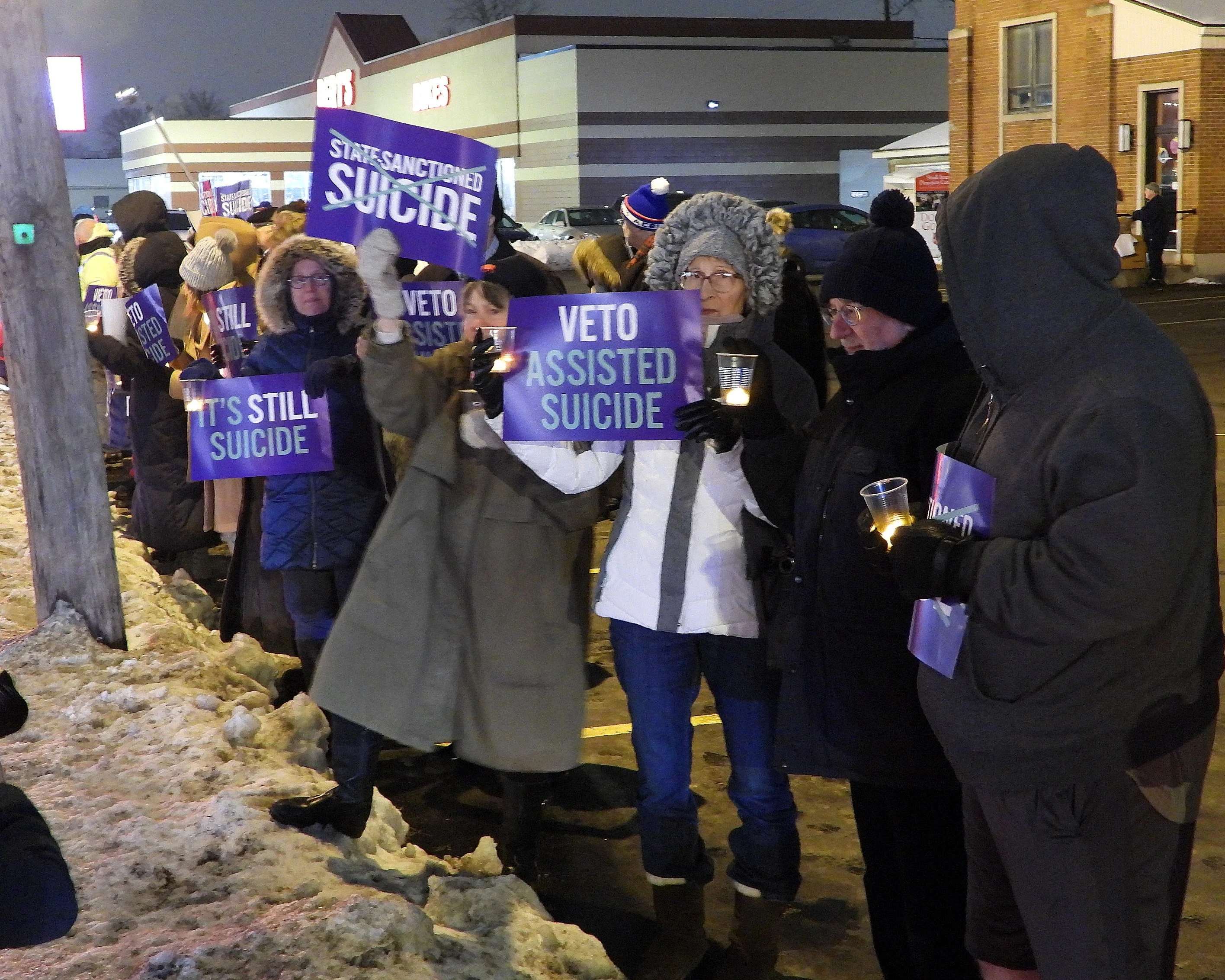
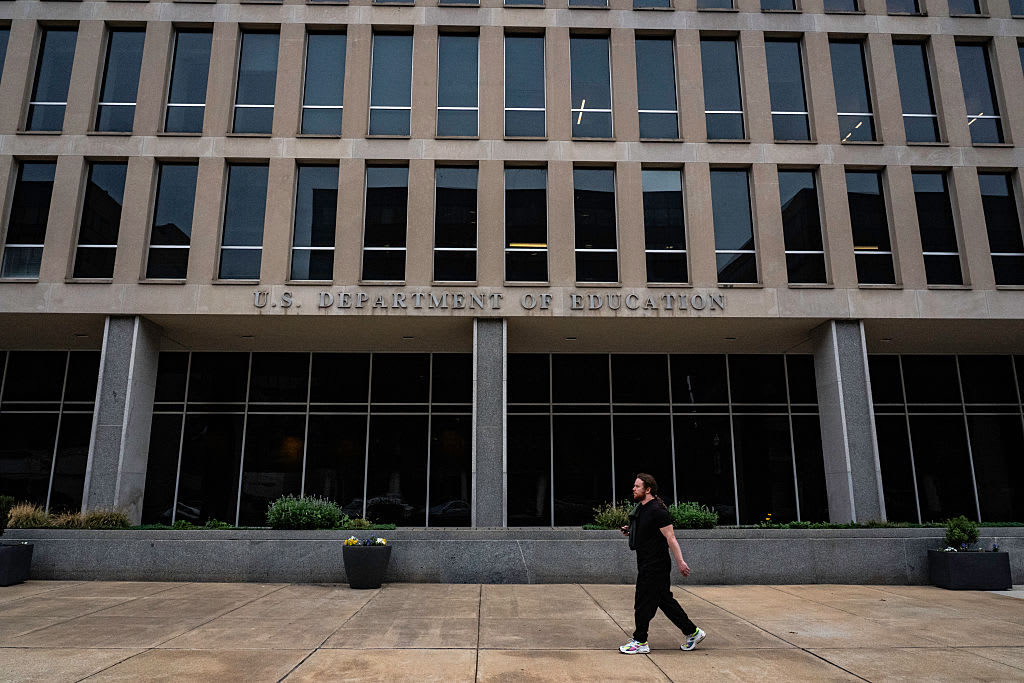
Public schools in the United States are required by the U.S. Constitution to allow students and staff to pray, the government said this week.
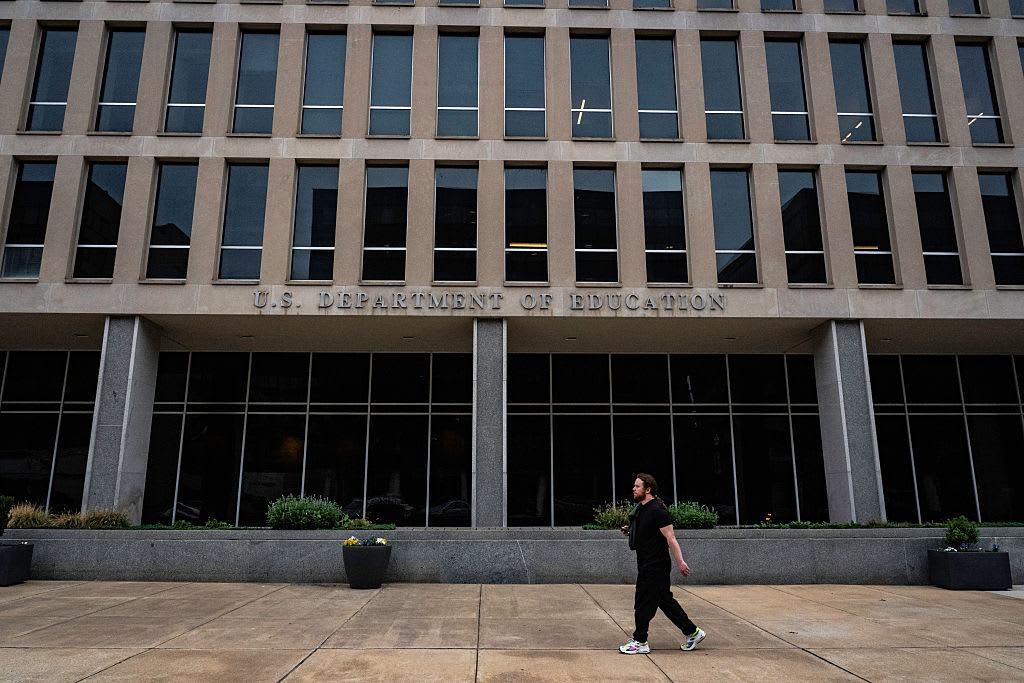
![Catholic convert Eva Vlaardingerbroek on censorship and immigration in Europe #Catholic Catholic Dutch political commentator and activist Eva Vlaardingerbroek said “the rule of law is dead” in Europe and detailed the issues of censorship and immigration on the continent.Vlaardingerbroek is an attorney and Catholic convert who has been outspoken about European immigration, national sovereignty, and free speech. Recently, the U.K. government banned her from entering the country due to her outspoken views.“Out of the blue, I saw that I had received an email from the U.K. government,” she told Raymond Arroyo on EWTN’s “The World Over with Raymond Arroyo.” It was “just a couple of sentences saying that my ETA, which is the travel authorization that Europeans need to travel to the U.K., had been revoked.”The reason they stated “was that I am ‘not conducive to the public good,’” she said. Vlaardingerbroek said she believes the ban occurred because she criticized the prime minister of the United Kingdom, Keir Starmer, on social media three days before receiving the email.The situation shows that “the rule of law is dead in Europe,” Vlaardingerbroek said. “Because if you get a notification like that out of the blue, you have no ability, no means to defend yourself … I don’t have a criminal record. I didn’t commit a crime.”“I got converted to Catholicism in the United Kingdom, so I have a couple of really dear friends there. Now, I’m no longer able to go because I say the wrong things, apparently. That is the state of Europe right now … They either throw you in jail or they make sure that you can’t enter the country. That’s what happens in the United Kingdom if you go against the grain,” she said.European immigrationVlaardingerbroek has also been outspoken about illegal immigration in Europe and said that mass immigration has destabilized Europe and led to spikes in violent crimes.“Anyone with two eyes can see that it’s true,” she said. Everyone who lives here, apart from maybe people living in ivory towers or in areas where there are no immigrants, everyone who lives in the real world knows that it’s true.”“I will continue speaking the truth about what I see happening to this beautiful continent of ours because it’s being destroyed,” she said. “We see churches burning down every week here in Europe, and that’s not a coincidence. That didn’t happen for hundreds of years, and suddenly now … they’re burning down faster than I can count.”“You can break the law coming here. It’s not being punished. In fact, it’s rewarded because people get to stay, people get free housing, people get free health care, and they’re able to just roam around even awaiting whether they are going to get their asylum approved or not.”“The governments and the legal system seem to be working hand in hand” and the “judges are complicit,” Vlaardingerbroek said. In Europe, the migrants that commit crimes are not held accountable because judges believe “they are traumatized because they come from a war zone” or due to their “their mental state.”“Then what ends up happening is these immigrants who rape, kill, and assault the native population, they just don’t get any real prison time, and they definitely do not get deported,” she said.“I think that this is a holdover from World War II,” she continued. Institutions including the European Union have “given evil one face and one face only” and “they refuse to see the difference between a Nazi and a conservative Christian.”“To them, it’s all the same, and that’s the way that they treat us,” she said. “I don’t think they’re afraid to acknowledge it. I think they honestly don’t care. I mean, the churches that are being burned down in France that we see, that’s a physical thing unfolding in front of our eyes.”The burning of churches “is powerful imagery that should wake people up to something else, something invisible, which is the agenda that is being carried out here to erode Christianity,” Vlaardingerbroek said.When the European Union discusses European culture, identity, and history, “they never mention Christianity,” Vlaardingerbroek said.“They actively removed it from their documents. They talk about the Enlightenment, but Christianity is never mentioned. They are actively eroding and erasing Christianity here in Europe because it threatens their agenda, because these people see [themselves] as God,” she said.U.S. immigrationAs debates over Immigration and Customs Enforcement (ICE) and law enforcement continue in the U.S, Vlaardingerbroek also discussed the status of immigration on this side of the pond.“As a Catholic, of course, we can be charitable. Nobody’s saying that we cannot allow some immigration or that we cannot help those in need. That is, of course, a Catholic ideal. That is a Catholic value … That’s what our legal system reflects,” she said.“That doesn’t mean, however, that when you come here illegally, which is what happens the majority of the time, and you break [the] laws, that we have to sit by and watch that happen.”ICE agents “are doing their job,” Vlaardingerbroek said. “They are enforcing the law. I think it’s a disgrace the way that they are being treated.”“I wish actually that here in Europe, we would have our version of ICE and that they would … send back home the people who come here illegally and who do not belong in these countries and who actively fight everything that we stand for, both in America and here in Europe,” Vlaardingerbroek said. Catholic convert Eva Vlaardingerbroek on censorship and immigration in Europe #Catholic Catholic Dutch political commentator and activist Eva Vlaardingerbroek said “the rule of law is dead” in Europe and detailed the issues of censorship and immigration on the continent.Vlaardingerbroek is an attorney and Catholic convert who has been outspoken about European immigration, national sovereignty, and free speech. Recently, the U.K. government banned her from entering the country due to her outspoken views.“Out of the blue, I saw that I had received an email from the U.K. government,” she told Raymond Arroyo on EWTN’s “The World Over with Raymond Arroyo.” It was “just a couple of sentences saying that my ETA, which is the travel authorization that Europeans need to travel to the U.K., had been revoked.”The reason they stated “was that I am ‘not conducive to the public good,’” she said. Vlaardingerbroek said she believes the ban occurred because she criticized the prime minister of the United Kingdom, Keir Starmer, on social media three days before receiving the email.The situation shows that “the rule of law is dead in Europe,” Vlaardingerbroek said. “Because if you get a notification like that out of the blue, you have no ability, no means to defend yourself … I don’t have a criminal record. I didn’t commit a crime.”“I got converted to Catholicism in the United Kingdom, so I have a couple of really dear friends there. Now, I’m no longer able to go because I say the wrong things, apparently. That is the state of Europe right now … They either throw you in jail or they make sure that you can’t enter the country. That’s what happens in the United Kingdom if you go against the grain,” she said.European immigrationVlaardingerbroek has also been outspoken about illegal immigration in Europe and said that mass immigration has destabilized Europe and led to spikes in violent crimes.“Anyone with two eyes can see that it’s true,” she said. Everyone who lives here, apart from maybe people living in ivory towers or in areas where there are no immigrants, everyone who lives in the real world knows that it’s true.”“I will continue speaking the truth about what I see happening to this beautiful continent of ours because it’s being destroyed,” she said. “We see churches burning down every week here in Europe, and that’s not a coincidence. That didn’t happen for hundreds of years, and suddenly now … they’re burning down faster than I can count.”“You can break the law coming here. It’s not being punished. In fact, it’s rewarded because people get to stay, people get free housing, people get free health care, and they’re able to just roam around even awaiting whether they are going to get their asylum approved or not.”“The governments and the legal system seem to be working hand in hand” and the “judges are complicit,” Vlaardingerbroek said. In Europe, the migrants that commit crimes are not held accountable because judges believe “they are traumatized because they come from a war zone” or due to their “their mental state.”“Then what ends up happening is these immigrants who rape, kill, and assault the native population, they just don’t get any real prison time, and they definitely do not get deported,” she said.“I think that this is a holdover from World War II,” she continued. Institutions including the European Union have “given evil one face and one face only” and “they refuse to see the difference between a Nazi and a conservative Christian.”“To them, it’s all the same, and that’s the way that they treat us,” she said. “I don’t think they’re afraid to acknowledge it. I think they honestly don’t care. I mean, the churches that are being burned down in France that we see, that’s a physical thing unfolding in front of our eyes.”The burning of churches “is powerful imagery that should wake people up to something else, something invisible, which is the agenda that is being carried out here to erode Christianity,” Vlaardingerbroek said.When the European Union discusses European culture, identity, and history, “they never mention Christianity,” Vlaardingerbroek said.“They actively removed it from their documents. They talk about the Enlightenment, but Christianity is never mentioned. They are actively eroding and erasing Christianity here in Europe because it threatens their agenda, because these people see [themselves] as God,” she said.U.S. immigrationAs debates over Immigration and Customs Enforcement (ICE) and law enforcement continue in the U.S, Vlaardingerbroek also discussed the status of immigration on this side of the pond.“As a Catholic, of course, we can be charitable. Nobody’s saying that we cannot allow some immigration or that we cannot help those in need. That is, of course, a Catholic ideal. That is a Catholic value … That’s what our legal system reflects,” she said.“That doesn’t mean, however, that when you come here illegally, which is what happens the majority of the time, and you break [the] laws, that we have to sit by and watch that happen.”ICE agents “are doing their job,” Vlaardingerbroek said. “They are enforcing the law. I think it’s a disgrace the way that they are being treated.”“I wish actually that here in Europe, we would have our version of ICE and that they would … send back home the people who come here illegally and who do not belong in these countries and who actively fight everything that we stand for, both in America and here in Europe,” Vlaardingerbroek said.](https://unitedyam.com/wp-content/uploads/2026/02/catholic-convert-eva-vlaardingerbroek-on-censorship-and-immigration-in-europe-catholic-catholic-dutch-political-commentator-and-activist-eva-vlaardingerbroek-said-the-rule-of-law-is-dead.png)
Catholic convert Eva Vlaardingerbroek discussed immigration and the state of free speech in Europe on EWTN’s “The World Over with Raymond Arroyo.”
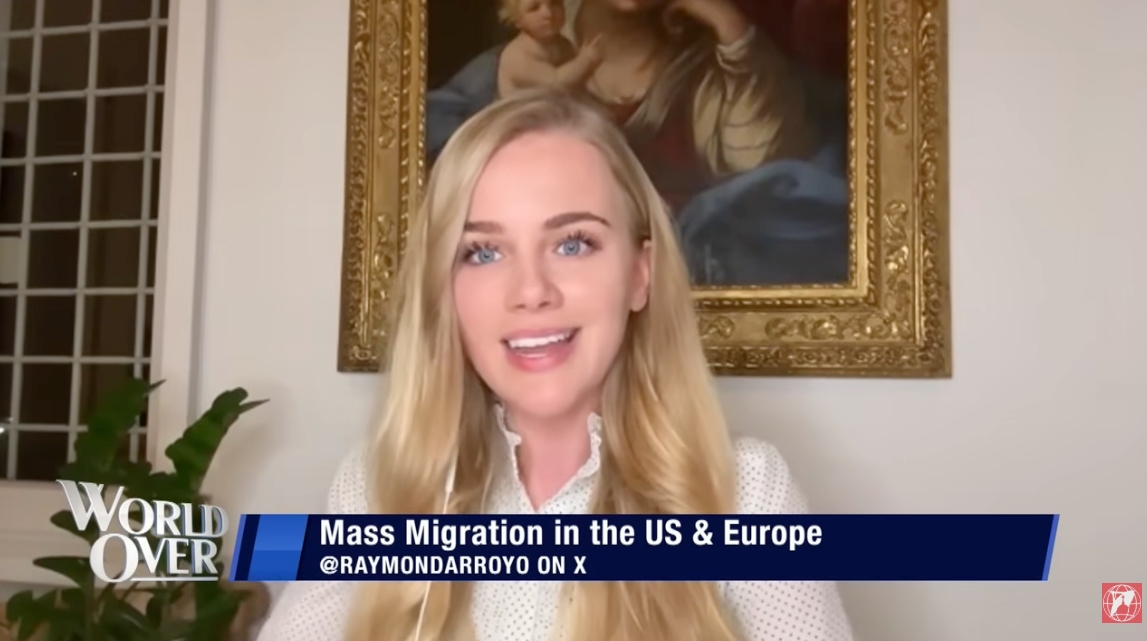
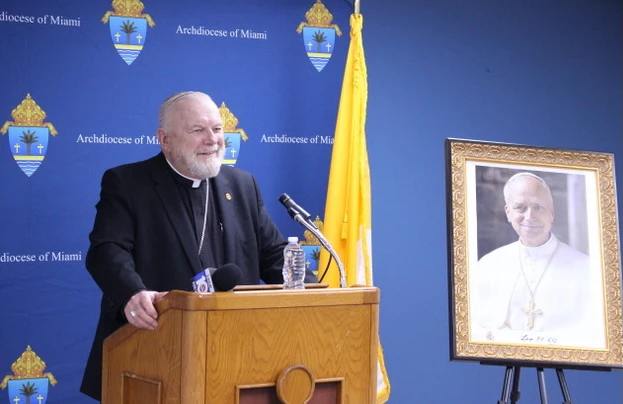
The Haitians “leaving South Florida and other places in the United States so abruptly would cause great economic damage to the United States,” Archbishop Thomas Wenski said.
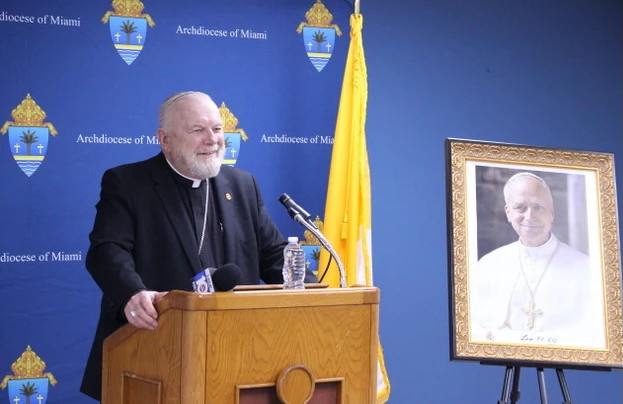
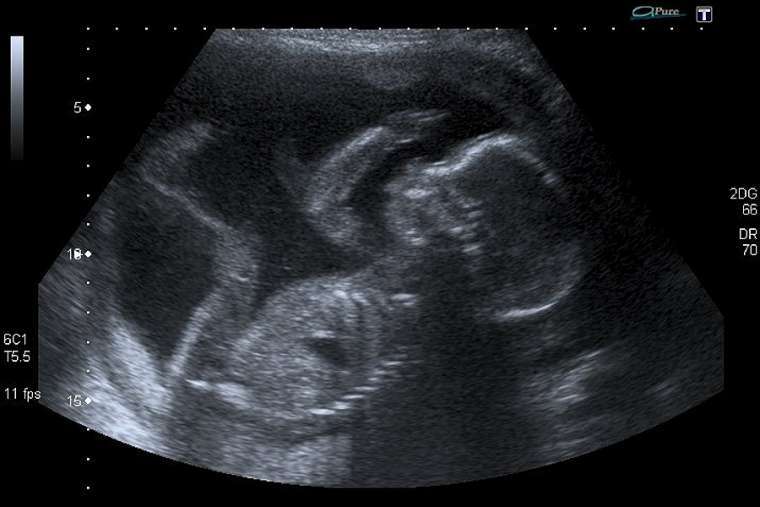

Jan 21, 2026 / 15:49 pm (CNA).
A federal health spending bill would impose a long-enforced ban on using taxpayer funds for elective abortion, known as the Hyde Amendment.
The U.S. House is set to consider the bill this week, which would fund the departments of Labor, Education, and Health and Human Services. Lawmakers would need to pass spending bills in both chambers and send them to the White House by Jan. 30 or the government could face another partial shutdown.
Republican President Donald Trump had asked his party to be “flexible” in its approach to the provision in a separate funding bill. According to a Jan. 19 news release from the Republican-led House Appropriations Committee, the Labor-HHS-Education spending bill includes the provision “protecting the lives of unborn children” known as the Hyde Amendment.
The Hyde Amendment, which is not permanent law, was first included as a rider in federal spending bills in 1976. It was included consistently since then although some recent legislation and budget proposals have sometimes excluded it. The provision would ban federal funds for abortion except when the unborn child is conceived through rape or incest or if the life of the mother is at risk.
Katie Glenn Daniel, director of legal affairs and policy counsel for Susan B. Anthony Pro-Life America, said the amendment is “a long-standing federal policy that’s been included for the last five decades and is popular with the American people.”
“Americans don’t want to pay for abortion on demand,” she said.
Many Democratic lawmakers have sought to eliminate the rider in recent years, saying it disproportionately limits abortion access for low-income women. Former President Joe Biden reversed his longtime support of the Hyde Amendment in the lead-up to the 2020 election and refused to include it in his spending proposals, saying: “If I believe health care is a right, as I do, I can no longer support an amendment that makes that right dependent on someone’s zip code.” But Republicans successfully negotiated the rider’s inclusion into spending bills.
In January 2025, Trump issued an executive order directing the government to enforce the Hyde Amendment. A year later, Trump urged Republicans to be “a little flexible on Hyde” when lawmakers were negotiating the extension of health care subsidies related to the Affordable Care Act. A White House spokesperson also said the president would work with Congress to ensure the strongest possible pro-life protections.
The House eventually passed the extension without the Hyde Amendment after 17 Republicans joined Democrats to support the bill. The Senate has not yet advanced the measure, where the question of whether to include the Hyde Amendment has been a point of contention between Republicans and Democrats.
In mid-January, Trump announced a plan to change how health care subsidies are disbursed. There was no mention of the Hyde Amendment in the White House’s 827-word memo.
The United States Conference of Catholic Bishops has consistently lobbied for the inclusion of the Hyde Amendment in spending bills. On Jan. 14, the bishops sent a letter to Congress “to stress in the strongest possible terms that Hyde is essential for health care policy that protects human dignity.”
“Authentic health care and the protection of human life go hand in hand,” the letter said. “There can be no compromise on these two combined values.”
Read More![Catholics express mixed views on first year of Trump’s second term #Catholic
With Speaker of the House Mike Johnson by his side, President Donald Trump speaks to the press following a House Republican meeting at the U.S. Capitol on May 20, 2025, in Washington, D.C. | Credit: Tasos Katopodis/Getty Images
Jan 20, 2026 / 12:21 pm (CNA).
Catholics are offering mixed reactions to the first year of President Donald Trump’s second term, which included domestic policy actions that align with U.S. bishops on gender-related issues, and also tensions over immigration, expansion of the death penalty, and reduced funding for organizations that provide food and basic support to people in need.Trump secured his electoral victory in 2024 with the help of Catholics, who supported him by a double-digit margin, according to exit polls. A Pew Research Center report found that nearly a quarter of Trump’s voters in 2024 were Catholic.Throughout his first year, Trump — who calls himself a nondenominational Christian — has invoked Christianity and created a White House Faith Office. He created a Religious Liberty Commission by executive order in May 2025 and became the first president to issue a proclamation honoring the Catholic feast of the Immaculate Conception in December.Last year, the president also launched the “America Prays” initiative, which encouraged people to dedicate one hour of prayer for the United States and its people in preparation for the 250th anniversary of the Declaration of Independence on July 4, 2026.Immigration, poverty, and NGOsJohn White, professor of politics at The Catholic University of America, said the first year of Trump’s second term “challenged Catholics on many levels.”“The brutality of ICE has caused the U.S. Conference of Catholic Bishops to issue an extraordinary statement at the prompting of Pope Leo XIV,” White said, referring to the Immigration and Customs Enforcement agency. The U.S. Conference of Catholic Bishops (USCCB) issued a special message in November opposing indiscriminate mass deportations, calling for humane treatment, urging meaningful reform, and affirming the compatibility of national security with human dignity.The Trump administration, with JD Vance, the second Catholic vice president in U.S. history, cut billions of dollars in funding to nongovernmental organizations (NGOs), which financially damaged several Catholic nonprofits that had received funding. Trump also signed into law historic cuts to the Supplemental Nutrition Assistance Program.“The cuts to NGO funding, SNAP, and Medicaid benefits, alongside the huge increases in health care costs, have hurt the poor and middle class at home and around the world,” he said. “Instead of being the good Samaritan, Trump has challenged our Catholic values and narrowed our vision of who we are and what we believe. JD Vance’s interpretation of ‘Ordo Amoris’ of a hierarchy to those whom we love rather than a universal love is a case in point and has been repudiated by Pope Francis and Pope Leo XIV,” he said.The cuts aligned federal policy with the administration’s agenda, which included strict immigration enforcement, mass deportations of immigrants who are in the country illegally, and less foreign aid support.Catholic Charities USA was previously receiving more than $100 million annually for migrant services, and the Trump administration cut off those funds. In response, the organization scaled back its services.Since Trump took office, the administration said it has deported more than 600,000 people.Karen Sullivan, director of advocacy for the Catholic Legal Immigration Network (CLINIC), which provides legal services to migrants, said she is “very concerned about the way that immigration enforcement has been carried out,” adding her organization is “very concerned that human dignity of all persons [needs to] be respected.”Sullivan said the administration is “enabling their officers to use excessive force as they are taking people into custody” and “denying access to oversight at their detention centers.” She also expressed concern about the administration increasing fees for asylum applications and giving agents more leeway to conduct immigration enforcement at sensitive locations, such as churches, schools, and hospitals.She said the large number of deportations and the increase in expedited removals has “been a strain” on organizations that seek to provide legal help to migrants.CLINIC receives inquiries from people who are facing deportation and also those who fear they may be deported. She said: “The worry and the fear among those people [who may face deportation] makes them seek out assistance and advice even more often.”“The pace of the changes that have been happening in the past year have been very difficult to manage,” she said. “We are having to respond very quickly to changes."Executive actions on genderSusan Hanssen, a history professor at the University of Dallas (a Catholic institution), viewed the first year of Trump’s second term in mostly successful terms.“As Catholics we know that the law educates, and during Trump’s first year in office we witnessed an actual shift in public opinion on the LGBT/transgender ideology due to his asserting the scientific and natural common sense that there are only male and female,” Hanssen said.Trump took executive action to prohibit what he called the “chemical and surgical mutilation” of children, such as hormone therapy and surgical transition. He signed a policy restricting participation of transgender athletes in women’s sports. He legally recognized only two genders, determined by biology: male and female.“His strong executive action on this essential point — domestically in making the executive branch remove its trans-affirming language, the executive department of education stop subverting parental rights over their children, and women’s rights in sports, and (importantly) putting an end to USAID’s [U.S. Agency for International Development] pushing this gender agenda on the countries who need our economic assistance,” she said.“This has led to a genuine public shift, with fewer independent corporations choosing to enforce June as LGBT Pride month on their customer base, fewer DEI programs pushing the gender agenda on hiring, and a shift (especially among young men) towards disapproval of gender transitioning children and even towards disapproval of the legalization of so-called same sex ‘marriage,’” she added. “We will need to see how these executive branch victories will affect judicial and legislative action moving forward.”Father Tadeusz Pacholczyk, senior ethicist at the National Catholic Bioethics Center, had a similar view of some of the social changes.“The current administration has focused significant energy on the important task of ‘putting folks on notice,’ so it’s hard to deny, for example, that the misguided medico-pharmaceutical industry that has profited handsomely from exploiting vulnerable youth and other gender dysphoric individuals can no longer miss the loud indicators that these practices will not be able to continue unabated,” he said.Death penaltyTrump signaled a renewed and more aggressive federal capital-punishment policy in 2025, in opposition to the Catechism of the Catholic Church, which teaches that the death penalty is “inadmissible.”Trump signed an executive order on his first day in office directing the Justice Department to actively pursue the federal death penalty for serious crimes. He also directed federal prosecutors to seek death sentences in Washington, D.C., homicide cases. His administration lifted a moratorium on executions, reversing a pause in federal executions and following President Joe Biden’s commutations of federal death sentences.Archbishop Timothy P. Broglio, then-president of the USCCB, in a Jan. 22, 2025, statement called Trump’s support for expanding the federal death penalty “deeply troubling.” Newly elected USCCB president Archbishop Paul Coakley likewise called for the abolition of the death penalty.](https://unitedyam.com/wp-content/uploads/2026/01/catholics-express-mixed-views-on-first-year-of-trumps-second-term-catholic-with-speaker-of-the-house-mike-johnson-by-his-side-president-donald-trump-speaks-to-the-press-following-a-hous.jpg)

Jan 20, 2026 / 12:21 pm (CNA).
Catholics are offering mixed reactions to the first year of President Donald Trump’s second term, which included domestic policy actions that align with U.S. bishops on gender-related issues, and also tensions over immigration, expansion of the death penalty, and reduced funding for organizations that provide food and basic support to people in need.
Trump secured his electoral victory in 2024 with the help of Catholics, who supported him by a double-digit margin, according to exit polls. A Pew Research Center report found that nearly a quarter of Trump’s voters in 2024 were Catholic.
Throughout his first year, Trump — who calls himself a nondenominational Christian — has invoked Christianity and created a White House Faith Office. He created a Religious Liberty Commission by executive order in May 2025 and became the first president to issue a proclamation honoring the Catholic feast of the Immaculate Conception in December.
Last year, the president also launched the “America Prays” initiative, which encouraged people to dedicate one hour of prayer for the United States and its people in preparation for the 250th anniversary of the Declaration of Independence on July 4, 2026.
John White, professor of politics at The Catholic University of America, said the first year of Trump’s second term “challenged Catholics on many levels.”
“The brutality of ICE has caused the U.S. Conference of Catholic Bishops to issue an extraordinary statement at the prompting of Pope Leo XIV,” White said, referring to the Immigration and Customs Enforcement agency. The U.S. Conference of Catholic Bishops (USCCB) issued a special message in November opposing indiscriminate mass deportations, calling for humane treatment, urging meaningful reform, and affirming the compatibility of national security with human dignity.
The Trump administration, with JD Vance, the second Catholic vice president in U.S. history, cut billions of dollars in funding to nongovernmental organizations (NGOs), which financially damaged several Catholic nonprofits that had received funding. Trump also signed into law historic cuts to the Supplemental Nutrition Assistance Program.
“The cuts to NGO funding, SNAP, and Medicaid benefits, alongside the huge increases in health care costs, have hurt the poor and middle class at home and around the world,” he said. “Instead of being the good Samaritan, Trump has challenged our Catholic values and narrowed our vision of who we are and what we believe. JD Vance’s interpretation of ‘Ordo Amoris’ of a hierarchy to those whom we love rather than a universal love is a case in point and has been repudiated by Pope Francis and Pope Leo XIV,” he said.
The cuts aligned federal policy with the administration’s agenda, which included strict immigration enforcement, mass deportations of immigrants who are in the country illegally, and less foreign aid support.
Catholic Charities USA was previously receiving more than $100 million annually for migrant services, and the Trump administration cut off those funds. In response, the organization scaled back its services.
Since Trump took office, the administration said it has deported more than 600,000 people.
Karen Sullivan, director of advocacy for the Catholic Legal Immigration Network (CLINIC), which provides legal services to migrants, said she is “very concerned about the way that immigration enforcement has been carried out,” adding her organization is “very concerned that human dignity of all persons [needs to] be respected.”
Sullivan said the administration is “enabling their officers to use excessive force as they are taking people into custody” and “denying access to oversight at their detention centers.” She also expressed concern about the administration increasing fees for asylum applications and giving agents more leeway to conduct immigration enforcement at sensitive locations, such as churches, schools, and hospitals.
She said the large number of deportations and the increase in expedited removals has “been a strain” on organizations that seek to provide legal help to migrants.
CLINIC receives inquiries from people who are facing deportation and also those who fear they may be deported. She said: “The worry and the fear among those people [who may face deportation] makes them seek out assistance and advice even more often.”
“The pace of the changes that have been happening in the past year have been very difficult to manage,” she said. “We are having to respond very quickly to changes."
Susan Hanssen, a history professor at the University of Dallas (a Catholic institution), viewed the first year of Trump’s second term in mostly successful terms.
“As Catholics we know that the law educates, and during Trump’s first year in office we witnessed an actual shift in public opinion on the LGBT/transgender ideology due to his asserting the scientific and natural common sense that there are only male and female,” Hanssen said.
Trump took executive action to prohibit what he called the “chemical and surgical mutilation” of children, such as hormone therapy and surgical transition. He signed a policy restricting participation of transgender athletes in women’s sports. He legally recognized only two genders, determined by biology: male and female.
“His strong executive action on this essential point — domestically in making the executive branch remove its trans-affirming language, the executive department of education stop subverting parental rights over their children, and women’s rights in sports, and (importantly) putting an end to USAID’s [U.S. Agency for International Development] pushing this gender agenda on the countries who need our economic assistance,” she said.
“This has led to a genuine public shift, with fewer independent corporations choosing to enforce June as LGBT Pride month on their customer base, fewer DEI programs pushing the gender agenda on hiring, and a shift (especially among young men) towards disapproval of gender transitioning children and even towards disapproval of the legalization of so-called same sex ‘marriage,’” she added. “We will need to see how these executive branch victories will affect judicial and legislative action moving forward.”
Father Tadeusz Pacholczyk, senior ethicist at the National Catholic Bioethics Center, had a similar view of some of the social changes.
“The current administration has focused significant energy on the important task of ‘putting folks on notice,’ so it’s hard to deny, for example, that the misguided medico-pharmaceutical industry that has profited handsomely from exploiting vulnerable youth and other gender dysphoric individuals can no longer miss the loud indicators that these practices will not be able to continue unabated,” he said.
Trump signaled a renewed and more aggressive federal capital-punishment policy in 2025, in opposition to the Catechism of the Catholic Church, which teaches that the death penalty is “inadmissible.”
Trump signed an executive order on his first day in office directing the Justice Department to actively pursue the federal death penalty for serious crimes. He also directed federal prosecutors to seek death sentences in Washington, D.C., homicide cases. His administration lifted a moratorium on executions, reversing a pause in federal executions and following President Joe Biden’s commutations of federal death sentences.
Archbishop Timothy P. Broglio, then-president of the USCCB, in a Jan. 22, 2025, statement called Trump’s support for expanding the federal death penalty “deeply troubling.” Newly elected USCCB president Archbishop Paul Coakley likewise called for the abolition of the death penalty.
Read More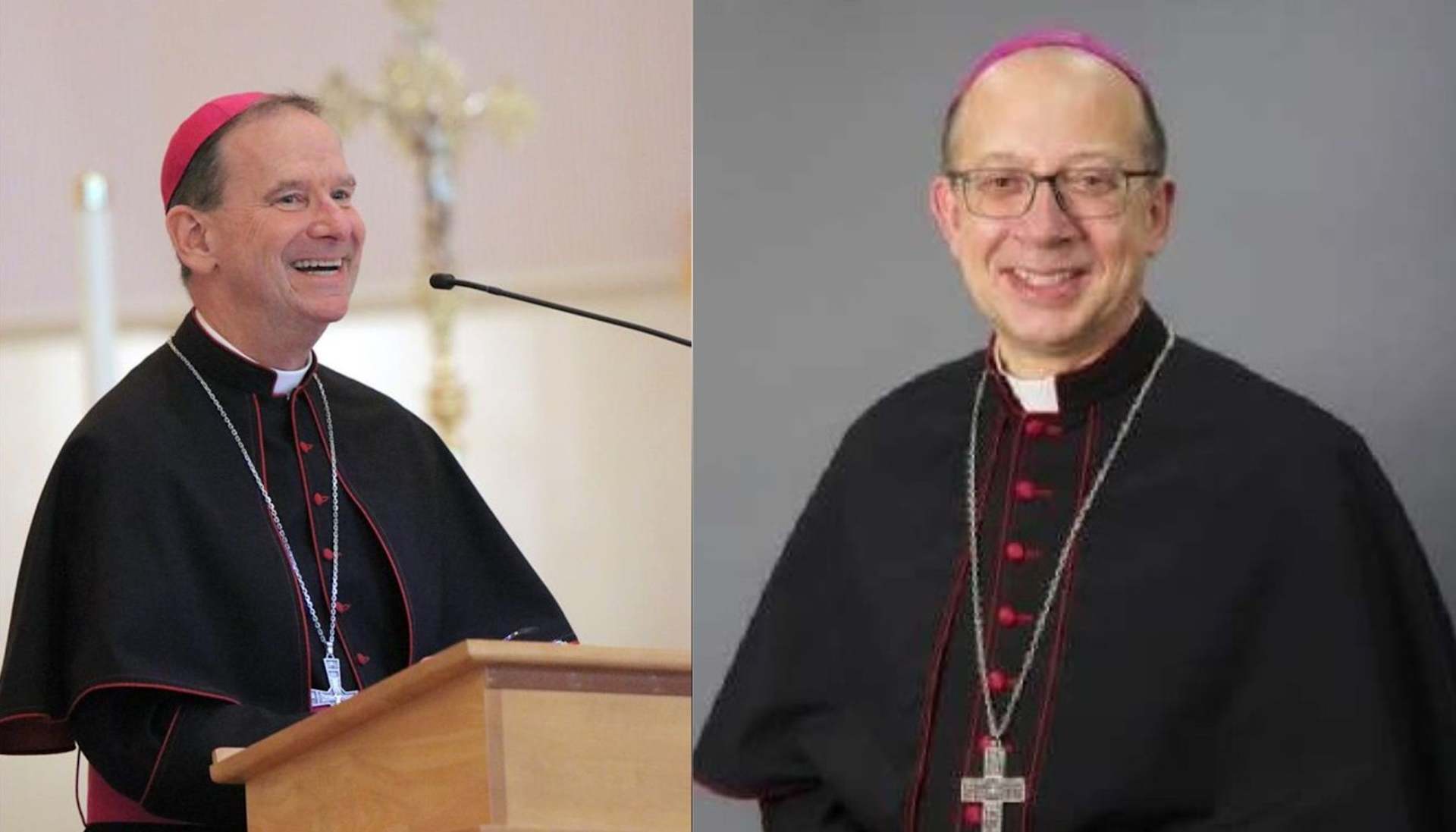

Jan 18, 2026 / 08:00 am (CNA).
The Virginia Catholic bishops on Friday spoke out against an abortion amendment that would remove state protections for unborn children, calling the measure “extreme.”
The Virginia General Assembly passed a proposed amendment that would add a fundamental right to abortion to Virginia’s constitution, if voters approve it this November.
The proposed abortion amendment would establish a “fundamental right to reproductive freedom, including the ability to make and carry out decisions relating to one’s own prenatal care, childbirth, postpartum care, contraception, abortion care, miscarriage management, and fertility care.”
Bishops Michael Burbidge of Arlington and Barry Knestout of Richmond called the move “shocking to the conscience,” noting that lawmakers quickly moved the proposed amendment through both chambers in the early days of its 60-day session.
“The extreme abortion amendment, which will proceed to a referendum for voters to decide later this year, would go far beyond even what Roe v. Wade previously allowed,” the bishops said in the Jan. 16 statement. “It would enshrine virtually unlimited abortion at any stage of pregnancy, with no age restriction.”
The bishops cautioned that the amendment would “severely jeopardize Virginia’s parental consent law, health and safety standards for women, conscience protections for health care providers, and restrictions on taxpayer-funded abortions.”
“Most tragically of all, the extreme abortion amendment provides no protections whatsoever for preborn children,” the bishops continued.
“Most importantly, human life is sacred,” the bishops said. “The lives of vulnerable mothers and their preborn children must always be welcomed, cared for, and protected.”
“Parental rights and the health and well-being of minors must be defended,” the bishops said. “So too must religious liberty. No one should ever be forced to pay for or participate in an abortion. Health and safety should be enhanced, not diminished.”
In addition, the bishops urged Virginia voters to oppose a measure that would repeal a 2006 provision defining marriage as between one man and one woman. The bishops also expressed support for a measure that would restore voting rights to those who have completed prison sentences.
“We will be deeply engaged in the work of helping to educate voters on these proposed amendments and will fight the extreme abortion amendment with maximum determination,” the bishops concluded.
The joint statement followed a statement by Burbidge, who on Jan. 15 urged Catholics to “to pray, fast, and advocate for the cause of life” amid the “looming threat” of the abortion amendment.
“Prayer opens our hearts to God’s wisdom and strengthens us to act with courage and charity,” Burbidge wrote. “Fasting makes reparation for sin and reminds us that true freedom is found not in self-indulgence but in self-gift. Advocacy allows us to bring our convictions into the public square with respect, clarity, and perseverance.”
“Our response as Catholics — and as citizens committed to justice — must be rooted in faith, truth, and love,” he continued.
Burbidge also reminded Catholics of the mercy of the Church.
“It is essential to reaffirm a truth that lies at the very center of the Church’s pro-life mission: The Church is a loving mother,” Burbidge continued. “To any man or woman who carries the pain, regret, or sorrow of participation in abortion, know this clearly — you are not alone, and God awaits you with love and mercy. The Church desires to walk with you on a journey of healing and hope.”
“May we together pray fervently, act courageously, and serve generously,” Burbidge said. “May our witness help build a culture in Virginia — and beyond — that recognizes every human life as sacred, every person as beloved, and every moment as an opportunity to choose life.”
Read More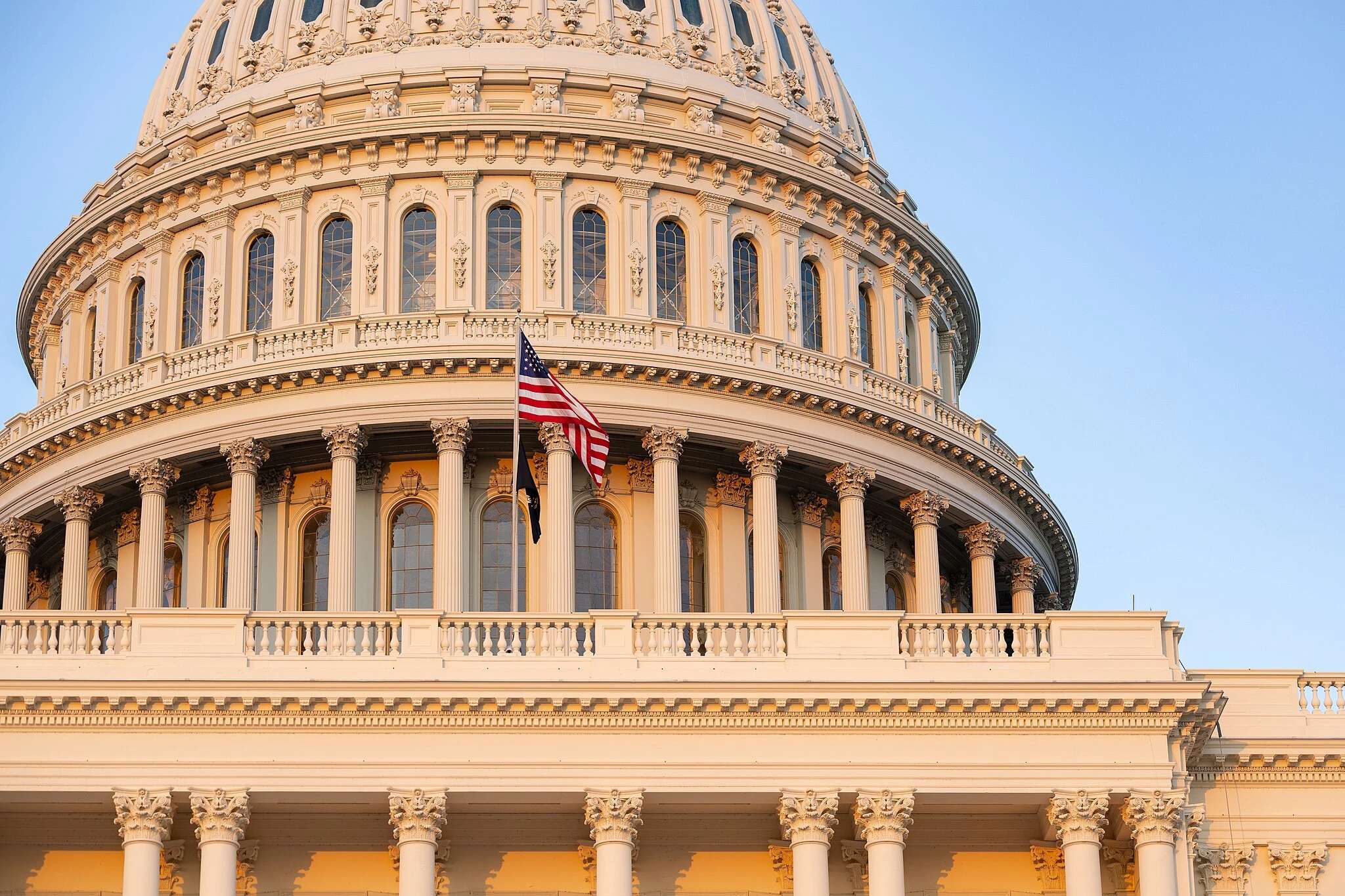

Jan 14, 2026 / 16:19 pm (CNA).
House Republican lawmakers unveiled a framework that outlines their budget priorities for the upcoming fiscal year, which includes permanently defunding large abortion providers such as Planned Parenthood.
The Republican Study Committee, which is the largest Republican-aligned caucus in the House, published the framework on Jan. 13. The document is a starting point for crafting the budget but does not include any of the specific language that will ultimately be included in the bill.
According to the framework, House Republican leaders intend to “extend and make permanent” the temporary freeze on federal funds for abortion providers, which was included in the tax overhaul that President Donald Trump signed into law last July.
That bill included a one-year freeze on Medicaid reimbursements for organizations that provide abortions on a large scale. Although existing law had already blocked direct taxpayer funds for elective abortions, the change in law expanded the ban to include non-abortive services that are offered by organizations that perform abortions on a large scale.
If that provision is not extended or made permanent in the next fiscal year, Planned Parenthood would again be eligible for Medicaid reimbursements for its non-abortive services.
Many Republicans had initially hoped to implement a more long-term freeze on reimbursements for Planned Parenthood in last year’s bill, but that effort failed. The original House proposal last year planned a 10-year freeze, but it was reduced to only one year following negotiations and compromise.
A spokesperson for National Right to Life said the organization is “excited” by the framework, adding that “this proposal would benefit countless American families while also protecting unborn Americans by extending the current defunding of major abortion providers.”
“Taxpayer dollars should not be used to subsidize abortion providers, and we are encouraged to see this principle reflected in the reconciliation framework,” the spokesperson said.
The ongoing one-year freeze already had a major impact on Planned Parenthood. Nearly 70 Planned Parenthood facilities closed last year, caused in part by the revenue stemming from those provisions in the tax overhaul.
Republicans hold a narrow five-seat majority in the House and a six-seat majority in the Senate, which means a small number of Republicans defecting could ultimately sink certain provisions.
The framework for the budget proposal also suggests an extension on the long-standing ban on direct federal funding for elective abortions, which has been included in federal budgets since 1976.
It also extends a ban on funds for “gender transition/mutilation procedures,” which was included in the tax overhaul.
According to the framework, both of these rules would apply to Medicaid reimbursements and tax credits provided through the Affordable Care Act, also known as Obamacare. According to the Republican Study Committee, the rules would save taxpayers about $2.9 billion in federal spending costs.
The framework for the budget priorities comes about one week after President Donald Trump asked Republicans to be “flexible” on language related to taxpayer-funded abortion in relation to negotiations surrounding extensions to health care subsidies in the Affordable Care Act.
Trump’s comments prompted criticism from some pro-life leaders, including Marjorie Dannenfelser, the president of Susan B. Anthony Pro-Life America.
In an Oval Office press conference Jan. 14, Trump and Health and Human Services Secretary Robert F. Kennedy Jr. said they didn’t know anything about HHS funds being released to Planned Parenthood in December.
Read More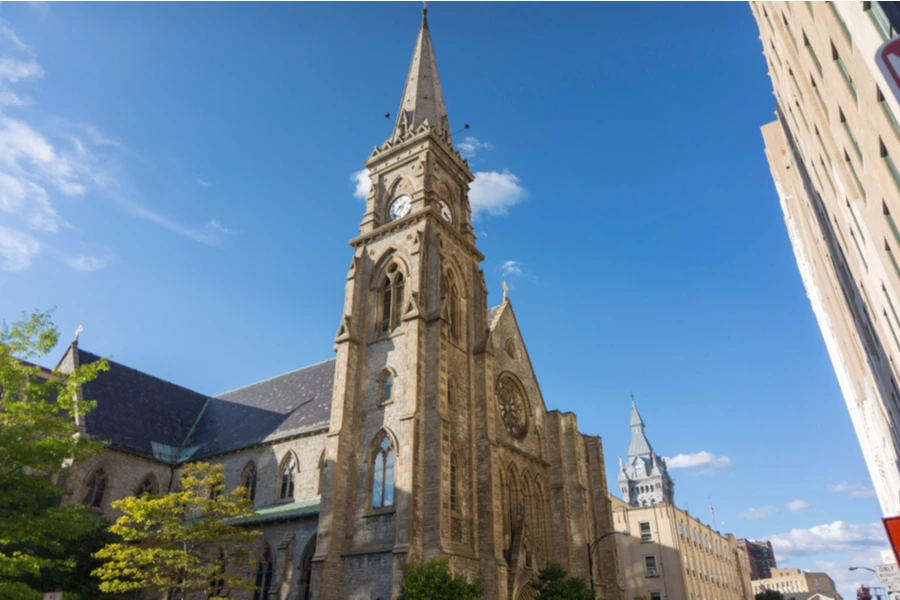

Jan 10, 2026 / 06:00 am (CNA).
Catholics in the U.S. were witness to a rare Church decision in 2023 when Pope Francis elevated the Diocese of Las Vegas to a metropolitan archdiocese. Las Vegas had previously been a suffragan diocese of San Francisco, having been created by Pope John Paul II in 1995.
A suffragan diocese operates within an ecclesiastical province subordinate to a larger archdiocese and is led by a suffragan bishop who has the authority to lead his own diocese but works under the metropolitan archbishop.
In September 2025, Pope Leo XIV created a new Catholic diocese in northern China; though it goes by the same name as one established decades ago by Beijing without Vatican approval — a product of ongoing tensions between China and the Holy See — the move demonstrated the Holy See’s authority in creating local Church jurisdictions.
Outside of one’s own parish, a diocese or archdiocese is arguably the average Catholic’s most common point of interaction with the Church. These jurisdictions manage local Church life and administration, with bishops and archbishops offering both spiritual and temporal guidance and authority to Catholics under their care.
But how does the Catholic Church decide what becomes a diocese or an archdiocese? What are the roots of this ancient practice, and how does it function today?
Monsignor William King, JCD, KCHS, an assistant professor at the school of canon law at The Catholic University of America, told CNA that the right to erect (or suppress) a diocese “belongs exclusively to the successor of Peter, the bishop of Rome,” that is, the pope.
“Historically, secular rulers have intruded into the process and the autonomy of the Church in this action has been hard-won,” he said, pointing out that “even today in certain parts of the world, secular or civil rulers wish to have input into matters such as this.”
The pope never makes decisions regarding dioceses and archdioceses “without considerable study and consultation,” King said.
The history of diocesan administration stretches back to the earliest years of the Church, he said. In those days a diocese consisted of “a city larger than the surrounding cities and towns,” often a place of commerce or a center of government.
Throughout the centuries, including after the imperial legalization of the Church by Constantine, Church leaders refined the diocesan structure of “pastoral ministry and governance” in order to facilitate “communication and decision-making” throughout Christendom.
“This became increasingly important as the Church grew and encountered different systems of law, philosophy, and religious practice,” King said. Roman models of government structure proved useful and sufficient for Church governance; King noted that the Church structure even today more closely resembles a government than a corporation.
The process by determining which jurisdictions counted as archdioceses likely arose in earlier centuries organically, King said, with Church leaders identifying major centers of “culture, education, commerce, government, and transportation” as particularly significant jurisdictions.
The procedure for elevating a diocese to an archdiocese, meanwhile — as Pope Francis did to Las Vegas in 2023 — requires “significant study, discussion, and decision-making,” King said.
The Holy See conducts such reviews in part through a diocese’s “quinquennial report,” a detailed rundown of the diocese’s activities and administration. Such a report may indicate to the Holy See that a particular region is growing and could benefit from elevation to an archdiocese.
Local suffragan bishops will participate in discussions to that effect, King said, and the Roman Curia will work with bishops’ conferences as well as the local apostolic nuncio.
“The ultimate decision is that of the Roman pontiff, the bishop of Rome,” King said, “but is always done with his awareness of the conversations and consultations already conducted at every level.”
The priest pointed out that not every local jurisdiction of the Church is a diocese or archdiocese. At times, he said, the pope may establish a less common ecclesiastical administration “for a variety of reasons that relate to culture, legal acceptance or opposition, small numbers, and the like.”
Such jurisdictions include apostolic prefectures, apostolic vicariates, ordinariates, and other designations. Such areas may be governed by a bishop or a priest named by the pope, King said.
Read More![Trump urges Republican ‘flexibility’ on taxpayer-funded abortions #Catholic
President Donald Trump talks to Republicans about their stance on the Hyde Amendment on Jan. 6, 2026. | Credit: Mandel NGAN/AFP via Getty Images
Jan 6, 2026 / 18:10 pm (CNA).
President Donald Trump is asking congressional Republicans to be more flexible on taxpayer funding for abortions as lawmakers continue to negotiate an extension to health care subsidies related to the Affordable Care Act, also known as Obamacare.Some federal subsidies that lowered premiums for those enrolled in the Affordable Care Act expired in December. The Kaiser Family Foundation estimates that the average increase to premiums for people who lost the subsidies will be about 114%, from $888 in 2025 to $1,904 in 2026. The exact costs will be different, depending on specific plans.Trump has encouraged his party to work on extending those subsidies and is asking them to be “flexible” on a provision that could affect tax-funded abortion. Democrats have proposed ending the restrictions of the Hyde Amendment, which bans direct federal funding for abortions in most cases.“Let the money go directly to the people,” Trump said at the House Republican Conference retreat at the John F. Kennedy Center for the Performing Arts on Jan. 6.“Now you have to be a little flexible on Hyde,” the president said. “You know that you got to be a little flexible. You got to work something [out]. You got to use ingenuity. You got to work. We’re all big fans of everything, but you got to be flexible. You have to have flexibility.”The Hyde Amendment began as a bipartisan provision in funding bills that prohibited the use of federal funds for more than 45 years. Lawmakers have reauthorized the prohibition every year since it was first introduced in 1976.A study from the Charlotte Lozier Institute estimates that the Hyde Amendment has saved more than 2.6 million lives. According to a poll conducted by the Marist Institute for Public Opinion, which was commissioned by the Knights of Columbus, nearly 6 in 10 Americans oppose tax funding for abortions.However, in recent years, many Democratic politicians have tried to keep the rule out of spending bills. Former President Joe Biden abandoned the Hyde Amendment in budget proposals, but it was ultimately included in the final compromise versions that became law.Marjorie Dannenfelser, president of Susan B. Anthony Pro-Life America, criticized Trump for urging flexibility on the provision, calling its support “an unshakeable bedrock principle and a minimum standard in the Republican Party.”Dannenfelser said Republicans “are sure to lose this November” if they abandon Hyde: “The voters sent a [Republican] trifecta to Washington and they expect it to govern like one.”“Giving in to Democrat demands that our tax dollars are used to fund plans that cover abortion on demand until birth would be a massive betrayal,” she said.Dannenfelser also noted that, before these comments, Trump has consistently supported the Hyde Amendment. The president issued an executive order in January on enforcing the Hyde Amendment that accused Biden’s administration of disregarding this “commonsense policy.”“For nearly five decades, the Congress has annually enacted the Hyde Amendment and similar laws that prevent federal funding of elective abortion, reflecting a long-standing consensus that American taxpayers should not be forced to pay for that practice,” the executive order reads.“It is the policy of the United States, consistent with the Hyde Amendment, to end the forced use of federal taxpayer dollars to fund or promote elective abortion,” it adds.](https://unitedyam.com/wp-content/uploads/2026/01/trump-urges-republican-flexibility-on-taxpayer-funded-abortions-catholic-president-donald-trump-talks-to-republicans-about-their-stance-on-the-hyde-amendment-on-jan-6-2026.jpg)

Jan 6, 2026 / 18:10 pm (CNA).
President Donald Trump is asking congressional Republicans to be more flexible on taxpayer funding for abortions as lawmakers continue to negotiate an extension to health care subsidies related to the Affordable Care Act, also known as Obamacare.
Some federal subsidies that lowered premiums for those enrolled in the Affordable Care Act expired in December.
The Kaiser Family Foundation estimates that the average increase to premiums for people who lost the subsidies will be about 114%, from $888 in 2025 to $1,904 in 2026. The exact costs will be different, depending on specific plans.
Trump has encouraged his party to work on extending those subsidies and is asking them to be “flexible” on a provision that could affect tax-funded abortion. Democrats have proposed ending the restrictions of the Hyde Amendment, which bans direct federal funding for abortions in most cases.
“Let the money go directly to the people,” Trump said at the House Republican Conference retreat at the John F. Kennedy Center for the Performing Arts on Jan. 6.
“Now you have to be a little flexible on Hyde,” the president said. “You know that you got to be a little flexible. You got to work something [out]. You got to use ingenuity. You got to work. We’re all big fans of everything, but you got to be flexible. You have to have flexibility.”
The Hyde Amendment began as a bipartisan provision in funding bills that prohibited the use of federal funds for more than 45 years. Lawmakers have reauthorized the prohibition every year since it was first introduced in 1976.
A study from the Charlotte Lozier Institute estimates that the Hyde Amendment has saved more than 2.6 million lives. According to a poll conducted by the Marist Institute for Public Opinion, which was commissioned by the Knights of Columbus, nearly 6 in 10 Americans oppose tax funding for abortions.
However, in recent years, many Democratic politicians have tried to keep the rule out of spending bills. Former President Joe Biden abandoned the Hyde Amendment in budget proposals, but it was ultimately included in the final compromise versions that became law.
Marjorie Dannenfelser, president of Susan B. Anthony Pro-Life America, criticized Trump for urging flexibility on the provision, calling its support “an unshakeable bedrock principle and a minimum standard in the Republican Party.”
Dannenfelser said Republicans “are sure to lose this November” if they abandon Hyde: “The voters sent a [Republican] trifecta to Washington and they expect it to govern like one.”
“Giving in to Democrat demands that our tax dollars are used to fund plans that cover abortion on demand until birth would be a massive betrayal,” she said.
Dannenfelser also noted that, before these comments, Trump has consistently supported the Hyde Amendment. The president issued an executive order in January on enforcing the Hyde Amendment that accused Biden’s administration of disregarding this “commonsense policy.”
“For nearly five decades, the Congress has annually enacted the Hyde Amendment and similar laws that prevent federal funding of elective abortion, reflecting a long-standing consensus that American taxpayers should not be forced to pay for that practice,” the executive order reads.
“It is the policy of the United States, consistent with the Hyde Amendment, to end the forced use of federal taxpayer dollars to fund or promote elective abortion,” it adds.
Read More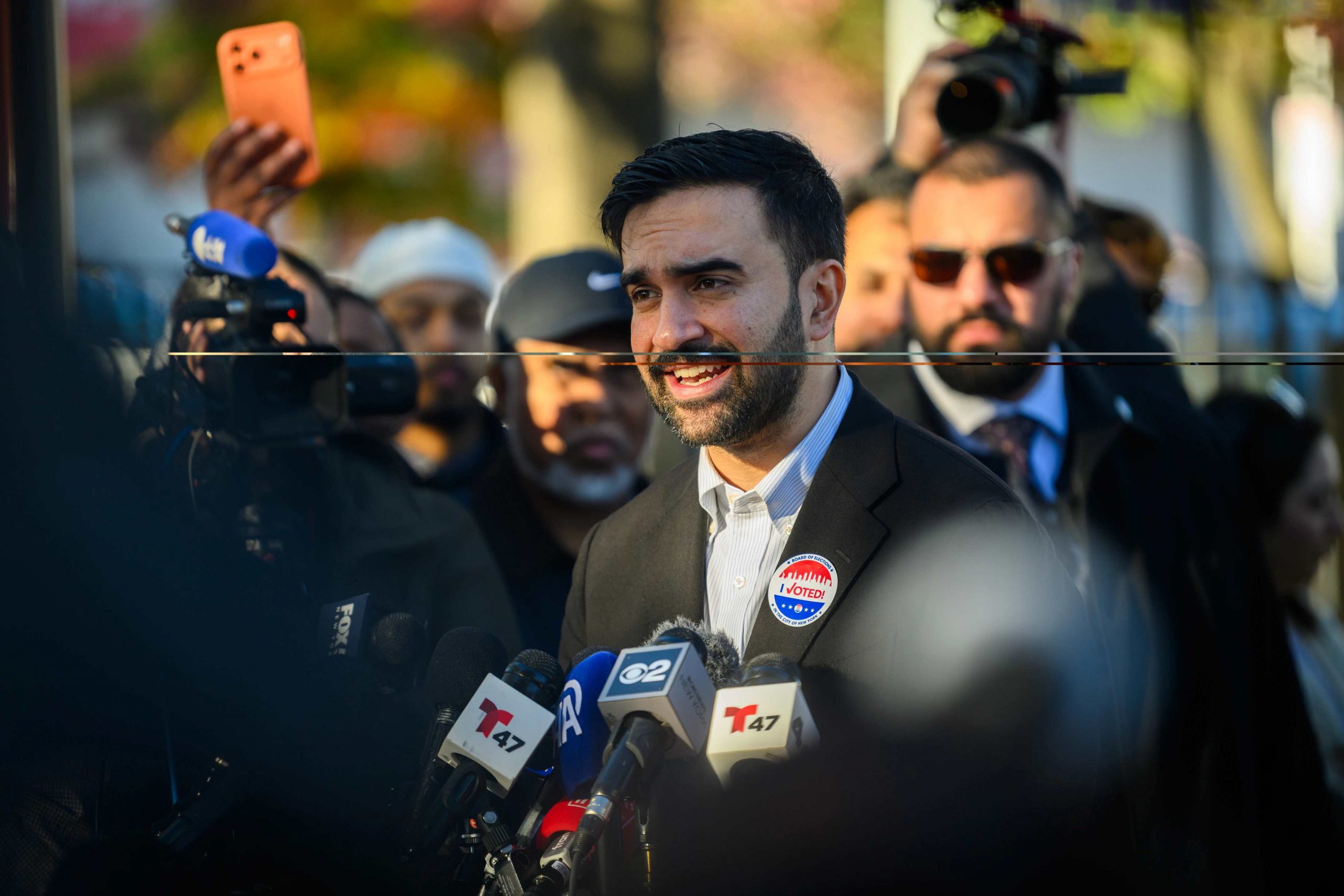

Jan 5, 2026 / 17:32 pm (CNA).
Bishop Robert Barron, founder of the Word on Fire ministry, criticized New York City Mayor Zohran Mamdani for promising constituents “the warmth of collectivism” in his Jan. 1 inaugural address.
Mamdani, who defeated two candidates with nearly 51% of the vote in the November election, won on a democratic socialist platform. His plans include free buses, city-owned grocery stores, no-cost child care, raising the minimum wage to $30 per hour, and freezing the rent for people in rent-stabilized apartments.
“We will replace the frigidity of rugged individualism with the warmth of collectivism,” Mamdani said in his inaugural address.
“If our campaign demonstrated that the people of New York yearn for solidarity, then let this government foster it,” he said. “Because no matter what you eat, what language you speak, how you pray, or where you come from — the words that most define us are the two we all share: New Yorkers.”
Barron, bishop of the Diocese of Winona-Rochester, Minnesota, said in a post on X that this line “took my breath away.”
“Collectivism in its various forms is responsible for the deaths of at least 100 million people in the last century,” Barron said.
“Socialist and communist forms of government around the world today — Venezuela, Cuba, North Korea, etc. — are disastrous,” he added. “Catholic social teaching has consistently condemned socialism and has embraced the market economy, which people like Mayor Mamdani caricature as ‘rugged individualism.’ In fact, it is the economic system that is based upon the rights, freedom, and dignity of the human person.”
“For God’s sake, spare me the ‘warmth of collectivism,’” Barron concluded.
Both socialism and communism have been condemned by many popes, first by Pope Pius IX in his 1849 encyclical Nostis et Nobiscum, just one year after Karl Marx published “ The Communist Manifesto.”
The foundation of Catholic social teaching rests on Pope Leo XIII’s 1891 encyclical Rerum Novarum.
In the encyclical, Leo denounced socialism and communism, and also condemned poor labor conditions for the working class and employers “who use human beings as mere instruments for moneymaking.”
“Each needs the other: Capital cannot do without labor, nor labor without capital,” the 19th century pontiff wrote. “Mutual agreement results in the beauty of good order, while perpetual conflict necessarily produces confusion and savage barbarity.”
Pope Pius XI, in his 1931 encyclical Quadragesimo Anno, wrote of the importance of private property, that man must be able to “fully cultivate and develop all his faculties unto the praise and glory of his Creator; and that by faithfully fulfilling the duties of his craft or other calling he may obtain for himself temporal and at the same time eternal happiness.”
Socialism, he said, is “wholly ignoring and indifferent to this sublime end of both man and society, affirms that human association has been instituted for the sake of material advantage alone.”
“Religious socialism, Christian socialism, are contradictory terms; no one can be at the same time a good Catholic and a true socialist,” Pius XI wrote.
Pope Benedict XVI differentiated socialism and democratic socialism. In 2006, he wrote: “In many respects, democratic socialism was and is close to Catholic social doctrine and has in any case made a remarkable contribution to the formation of a social consciousness.”
Though, in his 2005 encyclical Deus Caritas Est, Benedict XVI wrote that government should not control everything but that society needs a state that, “in accordance with the principle of subsidiarity, generously acknowledges and supports initiatives arising from the different social forces and combines spontaneity with closeness to those in need.”
Pope Francis has criticized Marxist ideology but also “radical individualism,” which he said in his 2020 encyclical Fratelli Tutti “makes us believe that everything consists in giving free rein to our own ambitions, as if by pursuing ever greater ambitions and creating safety nets we would somehow be serving the common good.”
In 2024, Francis encouraged cooperation and dialogue between Marxists and Christians.
The Catechism of the Catholic Church teaches: “The Church has rejected the totalitarian and atheistic ideologies associated in modem times with ‘communism’ or ‘socialism.’ She has likewise refused to accept, in the practice of ‘capitalism,’ individualism and the absolute primacy of the law of the marketplace over human labor.”
Read More![Food assistance, housing top Catholic Charities’ policy wish list in 2026 #Catholic
Credit: Jonathan Weiss/Shutterstock
Jan 2, 2026 / 07:00 am (CNA).
Many people who receive assistance through anti-poverty programs faced disruptions in 2025, and Catholic Charities’ wish list for 2026 includes government support for food assistance and housing.The largest disruption came in October when food stamps received through the Supplemental Nutrition Assistance Program (SNAP) were delayed amid the government shutdown. Funding for rental and heating assistance were also disrupted.Confusion about how to implement a memo in January from the Office of Management and Budget calling for a grant freeze also caused delays in funding related to health care, housing affordability, and food assistance.Luz Tavarez, vice president of government relations at Catholic Charities USA, said “people get nervous and scared” amid disruptions.Many Catholic Charities affiliates saw an influx in clients, especially during the shutdown, but Tavarez said there are “very poor people who rely on SNAP subsidies for their meals” and who “can’t get to a Catholic Charities [affiliate] or other food pantry for assistance” when it happens.Long-term eligibility and funding changes to SNAP were also approved in the tax overhaul signed into law in July. Previous rules only included a work requirement up to age 54, but the law extended those requirements up to age 64. It added stricter and more frequent checks for verifying the work requirements.It also shifted some funding responsibilities away from the federal government and to the states.Tavarez expressed concern about some of the SNAP changes as well, saying the government should end “burdensome requirements for individuals and states.”Under the new law, there are stricter rules for verifying a person’s immigration status for benefits. It also limited which noncitizens could receive SNAP benefits, which excluded some refugees and people granted asylum. Tavarez expressed concern about such SNAP changes, encouraging the government to permit “humanitarian-based noncitizens” to receive those benefits.Overall the 2025 tax law gave the biggest boost to the richest families while poorer families might get a little less help than before, according to the Congressional Budget Office.The bill added a work requirement for Medicaid recipients, and this will not take effect until 2027. Under the previous law, there was no work requirement for this benefit. It also shifts some Medicaid funding requirements onto the states.Tavarez said Catholic Charities has “concerns with how [work requirements are] implemented” moving forward but does not oppose the idea outright: “There’s dignity in work so the Church isn’t necessarily opposed to people working as long as there’s some opportunities for people to do other things and other issues are taken into consideration.”She also expressed concerns about funding shifts: “We know that not every state views things like SNAP and Medicaid as a good thing. We don’t know how states are going to balance their budget and prioritize these programs.”2026 wish listLooking forward to 2026, Tavarez said Catholic Charities hopes the government will restore full funding to the Temporary Emergency Food Assistance Program for food banks and bulk food distribution programs and ensure that funding is protected for school meals and the Special Supplemental Nutrition Program for Women, Infants, and Children.The Department of Housing and Urban Development (HUD) made policy changes in November that would focus its homelessness funding on “transitional” housing instead of “permanent” housing. This move is facing legal challenges.President Donald Trump’s administration initially sought to cut federal housing assistance and shift much of those costs to states, but this was ultimately not included in the final version of the 2025 tax law.In December, Trump promised an “aggressive” housing reform plan that focuses on reducing costs. At this time, the specifics of that proposal have not been announced. The increased cost to buy a new home has outpaced the growth in wages for decades.Tavarez said Catholic Charities is focused on housing affordability in 2026 and that the solution must be multifaceted. This includes “building and developing affordable housing,” “a tax credit for developers,” “more affordable housing units,” and subsidies and Section 8 vouchers for low-income Americans, she said.“We recognize that there’s a real crisis — I think everybody does in a bipartisan way — but there needs to be a real bipartisan approach and it’s going to require money,” Tavarez said.Tax credits and economic trendsSome changes to the tax code included in the 2025 tax law are geared toward helping low-income Americans.Specifically, the law reduced taxes taken from tips and overtime work. It also increased the child tax credit from $2,000 to $2,200 and tied the credit to inflation, meaning that it will increase each year based on the rate of inflation.Tavarez characterized the changes to the child tax credit as a “win” and hopes it can be expanded further.The economy has been a mixed bag, with November unemployment numbers showing a 4.6% rate. In November of last year, it was slightly lower at 4.2%.Inflation has gone down a little, with the annual rate being around 2.7%. In 2024, it was around 2.9%. The average wage for workers also outpaced inflation, with hourly wages increasing by 3.5%, which shows a modest inflation-adjusted increase of 0.8%.](https://unitedyam.com/wp-content/uploads/2026/01/food-assistance-housing-top-catholic-charities-policy-wish-list-in-2026-catholic-credit-jonathan-weiss-shutterstockjan-2-2026-0700-am-cna-many-people-who-receive-assistance-th-1.jpg)

Jan 2, 2026 / 07:00 am (CNA).
Many people who receive assistance through anti-poverty programs faced disruptions in 2025, and Catholic Charities’ wish list for 2026 includes government support for food assistance and housing.
The largest disruption came in October when food stamps received through the Supplemental Nutrition Assistance Program (SNAP) were delayed amid the government shutdown. Funding for rental and heating assistance were also disrupted.
Confusion about how to implement a memo in January from the Office of Management and Budget calling for a grant freeze also caused delays in funding related to health care, housing affordability, and food assistance.
Luz Tavarez, vice president of government relations at Catholic Charities USA, said “people get nervous and scared” amid disruptions.
Many Catholic Charities affiliates saw an influx in clients, especially during the shutdown, but Tavarez said there are “very poor people who rely on SNAP subsidies for their meals” and who “can’t get to a Catholic Charities [affiliate] or other food pantry for assistance” when it happens.
Long-term eligibility and funding changes to SNAP were also approved in the tax overhaul signed into law in July. Previous rules only included a work requirement up to age 54, but the law extended those requirements up to age 64. It added stricter and more frequent checks for verifying the work requirements.
It also shifted some funding responsibilities away from the federal government and to the states.
Tavarez expressed concern about some of the SNAP changes as well, saying the government should end “burdensome requirements for individuals and states.”
Under the new law, there are stricter rules for verifying a person’s immigration status for benefits. It also limited which noncitizens could receive SNAP benefits, which excluded some refugees and people granted asylum.
Tavarez expressed concern about such SNAP changes, encouraging the government to permit “humanitarian-based noncitizens” to receive those benefits.
Overall the 2025 tax law gave the biggest boost to the richest families while poorer families might get a little less help than before, according to the Congressional Budget Office.
The bill added a work requirement for Medicaid recipients, and this will not take effect until 2027. Under the previous law, there was no work requirement for this benefit. It also shifts some Medicaid funding requirements onto the states.
Tavarez said Catholic Charities has “concerns with how [work requirements are] implemented” moving forward but does not oppose the idea outright: “There’s dignity in work so the Church isn’t necessarily opposed to people working as long as there’s some opportunities for people to do other things and other issues are taken into consideration.”
She also expressed concerns about funding shifts: “We know that not every state views things like SNAP and Medicaid as a good thing. We don’t know how states are going to balance their budget and prioritize these programs.”
Looking forward to 2026, Tavarez said Catholic Charities hopes the government will restore full funding to the Temporary Emergency Food Assistance Program for food banks and bulk food distribution programs and ensure that funding is protected for school meals and the Special Supplemental Nutrition Program for Women, Infants, and Children.
The Department of Housing and Urban Development (HUD) made policy changes in November that would focus its homelessness funding on “transitional” housing instead of “permanent” housing. This move is facing legal challenges.
President Donald Trump’s administration initially sought to cut federal housing assistance and shift much of those costs to states, but this was ultimately not included in the final version of the 2025 tax law.
In December, Trump promised an “aggressive” housing reform plan that focuses on reducing costs. At this time, the specifics of that proposal have not been announced. The increased cost to buy a new home has outpaced the growth in wages for decades.
Tavarez said Catholic Charities is focused on housing affordability in 2026 and that the solution must be multifaceted. This includes “building and developing affordable housing,” “a tax credit for developers,” “more affordable housing units,” and subsidies and Section 8 vouchers for low-income Americans, she said.
“We recognize that there’s a real crisis — I think everybody does in a bipartisan way — but there needs to be a real bipartisan approach and it’s going to require money,” Tavarez said.
Some changes to the tax code included in the 2025 tax law are geared toward helping low-income Americans.
Specifically, the law reduced taxes taken from tips and overtime work. It also increased the child tax credit from $2,000 to $2,200 and tied the credit to inflation, meaning that it will increase each year based on the rate of inflation.
Tavarez characterized the changes to the child tax credit as a “win” and hopes it can be expanded further.
The economy has been a mixed bag, with November unemployment numbers showing a 4.6% rate. In November of last year, it was slightly lower at 4.2%.
Inflation has gone down a little, with the annual rate being around 2.7%. In 2024, it was around 2.9%. The average wage for workers also outpaced inflation, with hourly wages increasing by 3.5%, which shows a modest inflation-adjusted increase of 0.8%.
Read More